7800 XT vs 4070: the battle for midrange bragging rights
Who will win the 7800 XT vs 4070 slugfest?
Sign up for breaking news, reviews, opinion, top tech deals, and more.
You are now subscribed
Your newsletter sign-up was successful
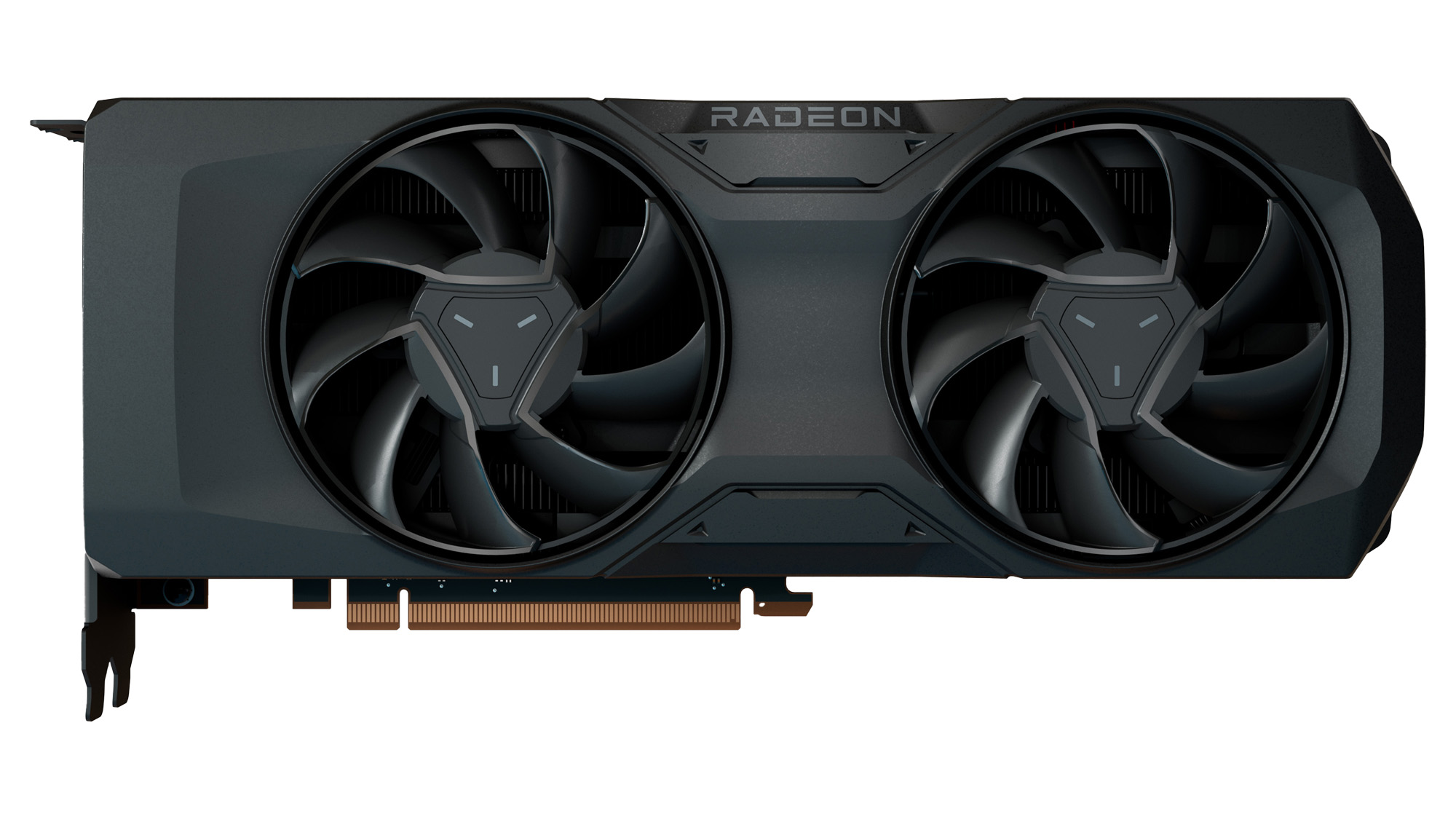
Shaders: 3,840
Ray Processors: 60
AI Processors: 120
Boost Clock: 2,430 MHz
VRAM: 16GB GDDR6 @ 19.4 Gbps effective
TGP: 263W
The AMD Radeon RX 7800 XT is going to be a fantastic graphics card for a lot of gamers out there who don't have the cash to shell out for Nvidia's much more expensive rival offering. Overall, it battles the RTX 4070 to a draw, but its performance is only marginally better than the RX 6800 XT
Pros
- Better rasterization than RTX 4070
- Improved ray tracing
- Much cheaper than rival
Cons
- Only marginally better than RX 6800 XT
- Power hungry
- Lags Nvidia in ray tracing
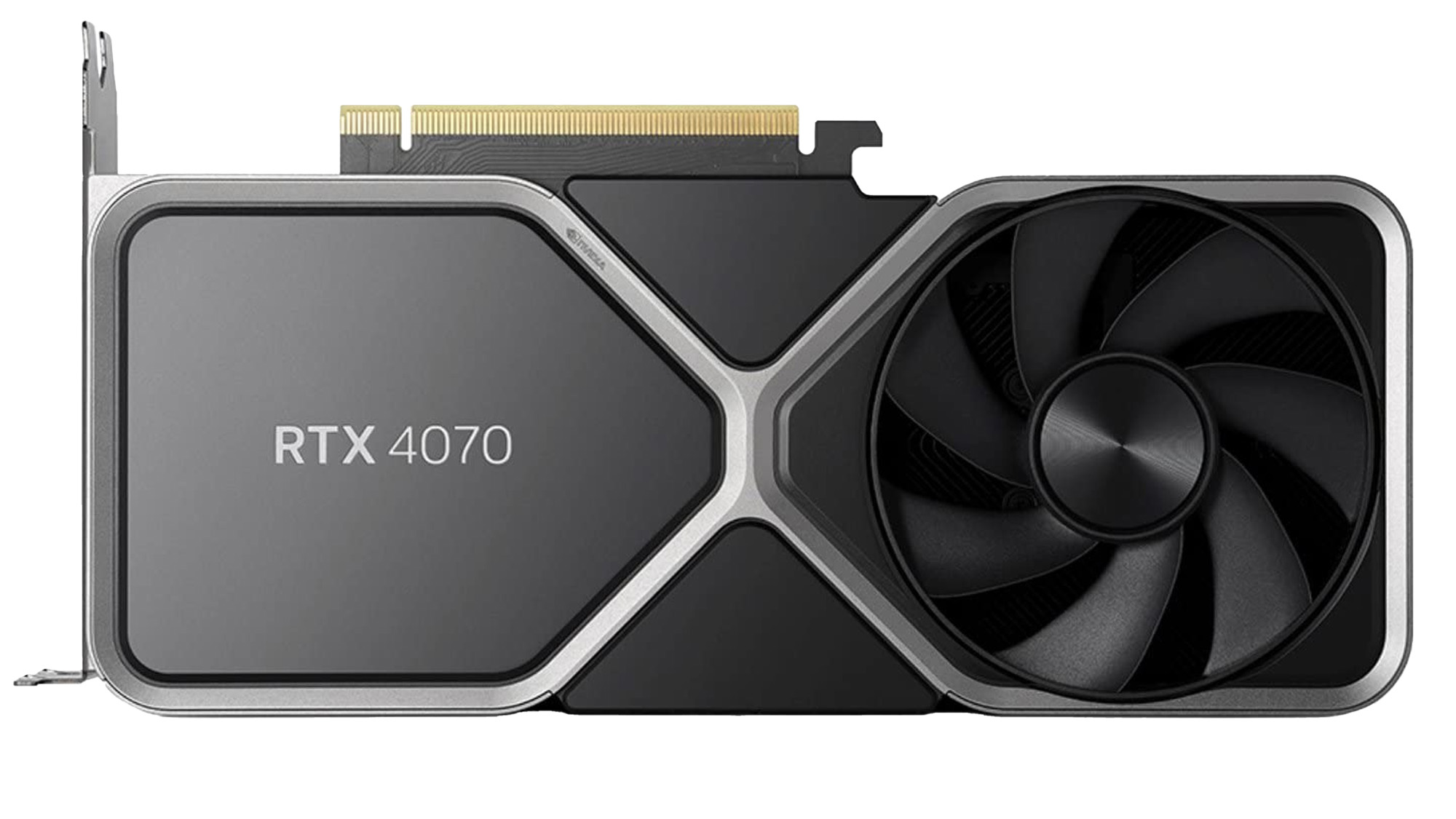
Shaders: 5,880
Ray processors: 46
AI Processors: 184
Boost Clock: 2,475 MHz
VRAM: 12GB GDDR6X @ 21 Gbps effective
TGP: 200W
The Nvidia GeForce RTX 4070 is arguably the perfect mix of performance, price, and advanced features that most gamers are going to want — and can actually afford — to buy. It's hard to find fault with this card other than its price, but it is pushing the definition of "midrange" to its limit.
Pros
- Can handle 4K gaming with DLSS
- Fantatic 1440p gaming
- Smaller form factor
Cons
- Most expensive midrange card
- Native 4K performance is lacking
- 16-pin connector
Despite having been released over two years ago, there are still valid reasons to weigh up the AMD Radeon RX 7800 XT vs Nvidia RTX 4070 today. While we now have the respective RDNA 4 and Blackwell replacements, the RX 9070 and RTX 5070, stock woes and dubious pricing have meant that they're not necessarily the out-and-out successor line. Especially in the case of the latter card, it's not much of an improvement at all where it counts.
Make no mistake, both the RX 7800 XT and the RTX 4070 remain some of the best graphics cards that you can buy in the midrange market; they're both competitively priced (and often cheaper now, thanks to the newer generations) with enough VRAM under the hood to easily power games in 1440p and even 4K. We're comparing the RX 7800 XT vs RTX 4070 in terms of their price, design, and performance to see which one is right for you.
You can also read up on how the two graphics cards compare to the others in their lineups, such as the RX 7800 XT vs RX 7900 GRE, the RTX 4070 vs RTX 4070 Ti, and whether midrange Blackwell is worth a go with our RTX 5070 vs RTX 4070 Super feature.
Additionally, see where both graphics cards stack up against some of the best 4K graphics cards on the market.
7800 XT vs 4070: Price
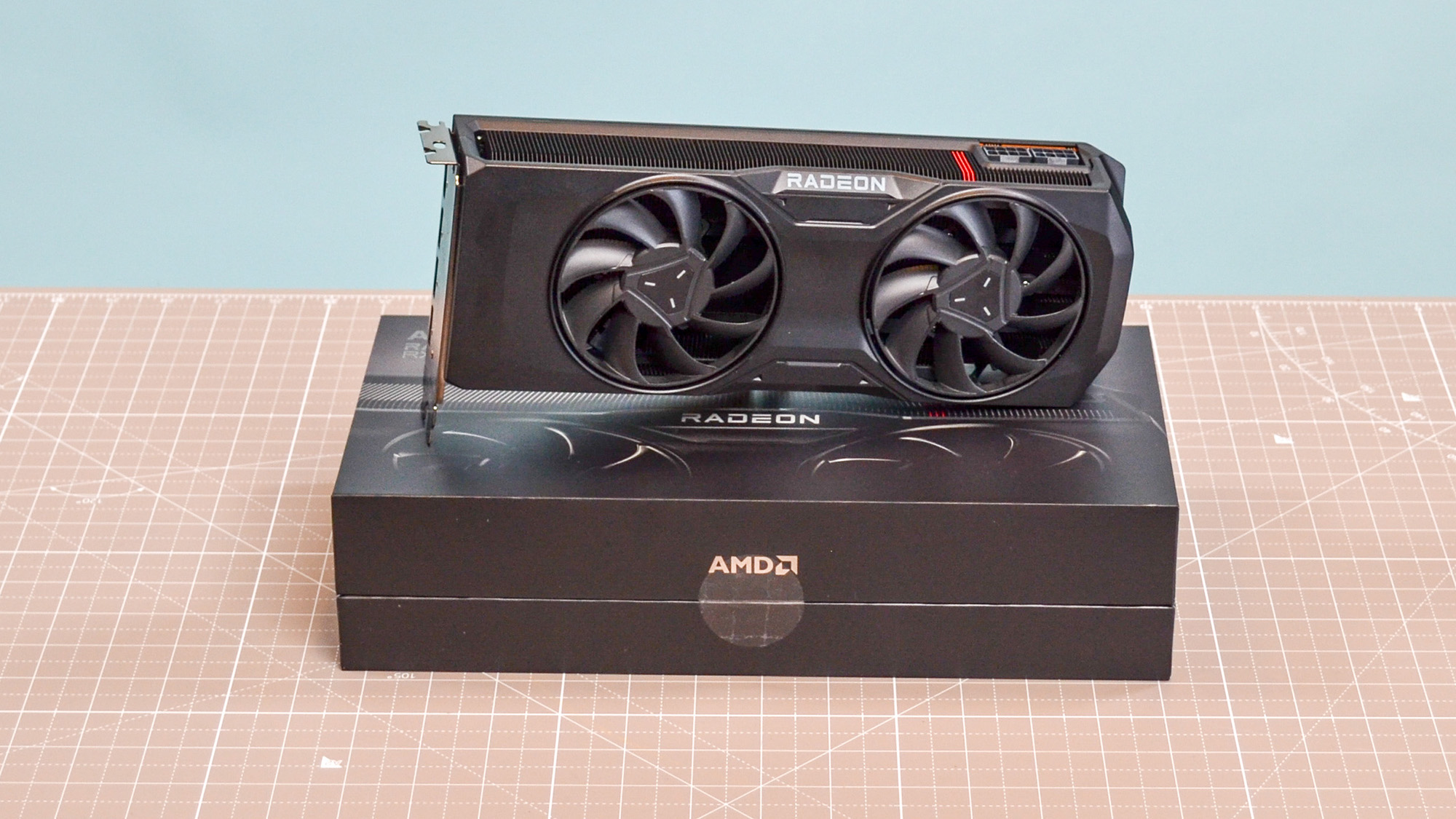
There's no question that the AMD Radeon RX 7800 XT wins the 7800 XT vs 4070 pricing round. Coming in at $499.99 (about £380 / AU$725), the RX 7800 XT is $100 cheaper than the RTX 4070, and given their relative performance to one another, the RX 7800 XT is simply the better value by far.
Unless you really need a card that can process Nvidia's CUDA instruction set, most of which are specific to creative industries and workloads like 3D rendering, you're going to get much more value out of the RX 7800 XT than the RTX 4070, as I'll get into in more detail in the performance section.
- Winner: AMD Radeon RX 7800 XT
7800 XT vs 4070: Design
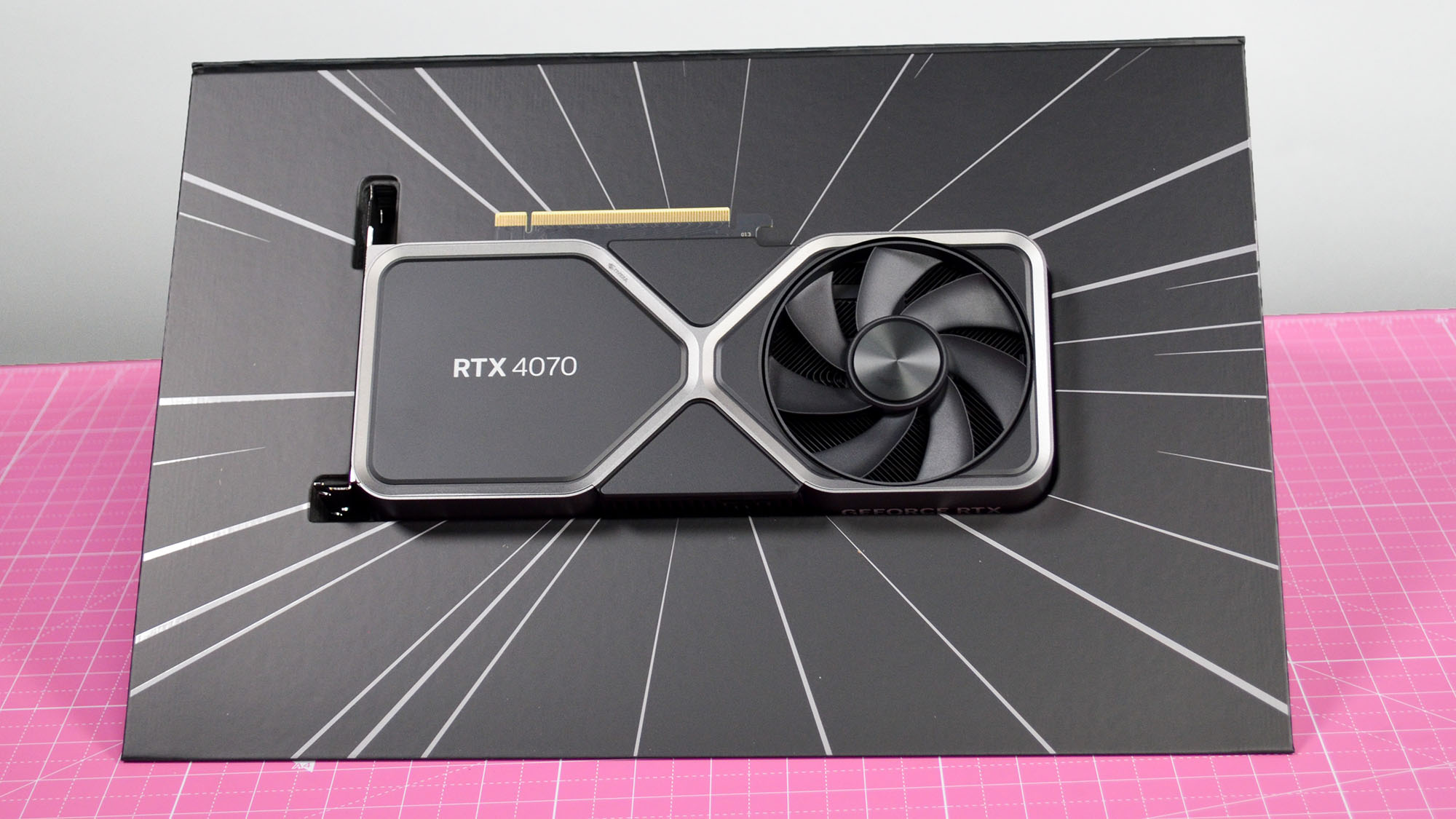
Given that most of the 7800 XT and 4070 cards you're going to find online are third-party offerings that vary in design (with some even sharing the same shrouds so as to look pretty much identical), it's hard to really give many design comparisons, though there are two minor points to bring up.
In the case of the RTX 4070, due to its 200W TGP, you'll find some cards (like the PNY GeForce RTX 4070 XLR8) that only need a single 8-pin power connector to run, which could be a major bonus if you've got a lot of expansion cards in your case and you're running low on free cables.
Sign up for breaking news, reviews, opinion, top tech deals, and more.
The RX 7800 XT, meanwhile, has a high enough TGP of 263W that no matter what card you go with, you'll need two 8-pin connectors to power it.
While that would seem to give the RTX 4070 an advantage here, it's also worth noting that the RTX 4070 outputs to DisplayPort 1.4 and HDMI 2.1, while the RX 7800 XT uses DisplayPort 2.1. That doesn't really matter much now, but DisplayPort 2.1 can output an 8K signal at 165Hz, while DisplayPort 1.4 is limited to 60Hz at 8K.
There aren't a whole lot of 8K monitors out there as it is, and none are running faster than 60Hz right now, but one day they will, and the RX 7800 XT will be able to hit that faster rate where the RTX 4070 cannot. Will either of these cards be playing Cyberpunk 2077 in 8K? Not a chance, but you could still enjoy a smoother desktop experience and other 8K benefits. It's a small bit of future-proofing, but it will matter to some people.
- Winner: Tie
7800 XT vs 4070: Performance
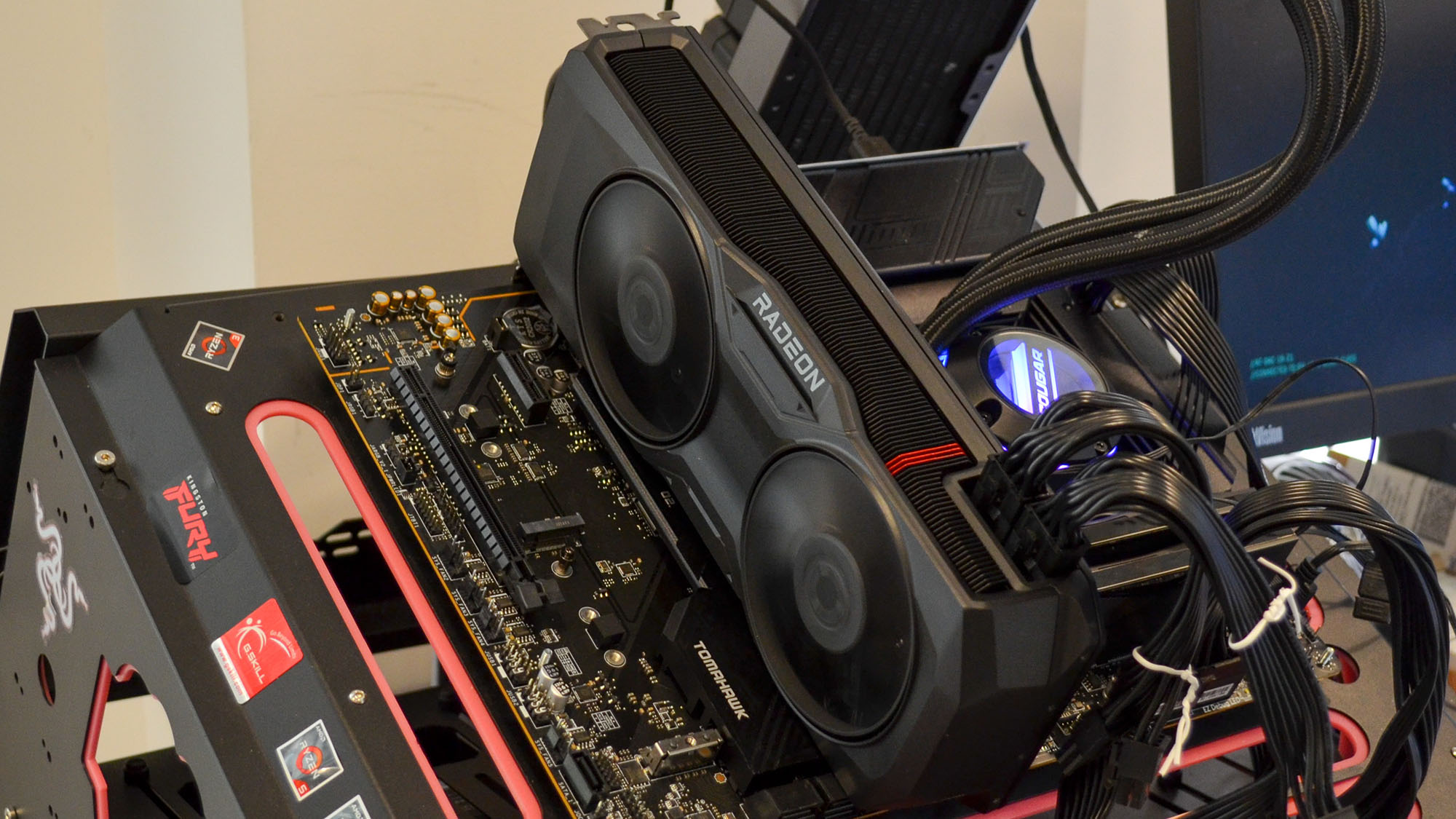
This is where things really break in the RX 7800 XT's favor. Pound for pound, the RX 7800 XT manages to squeeze in a win here with a roughly 2% overall performance advantage over the RTX 4070.
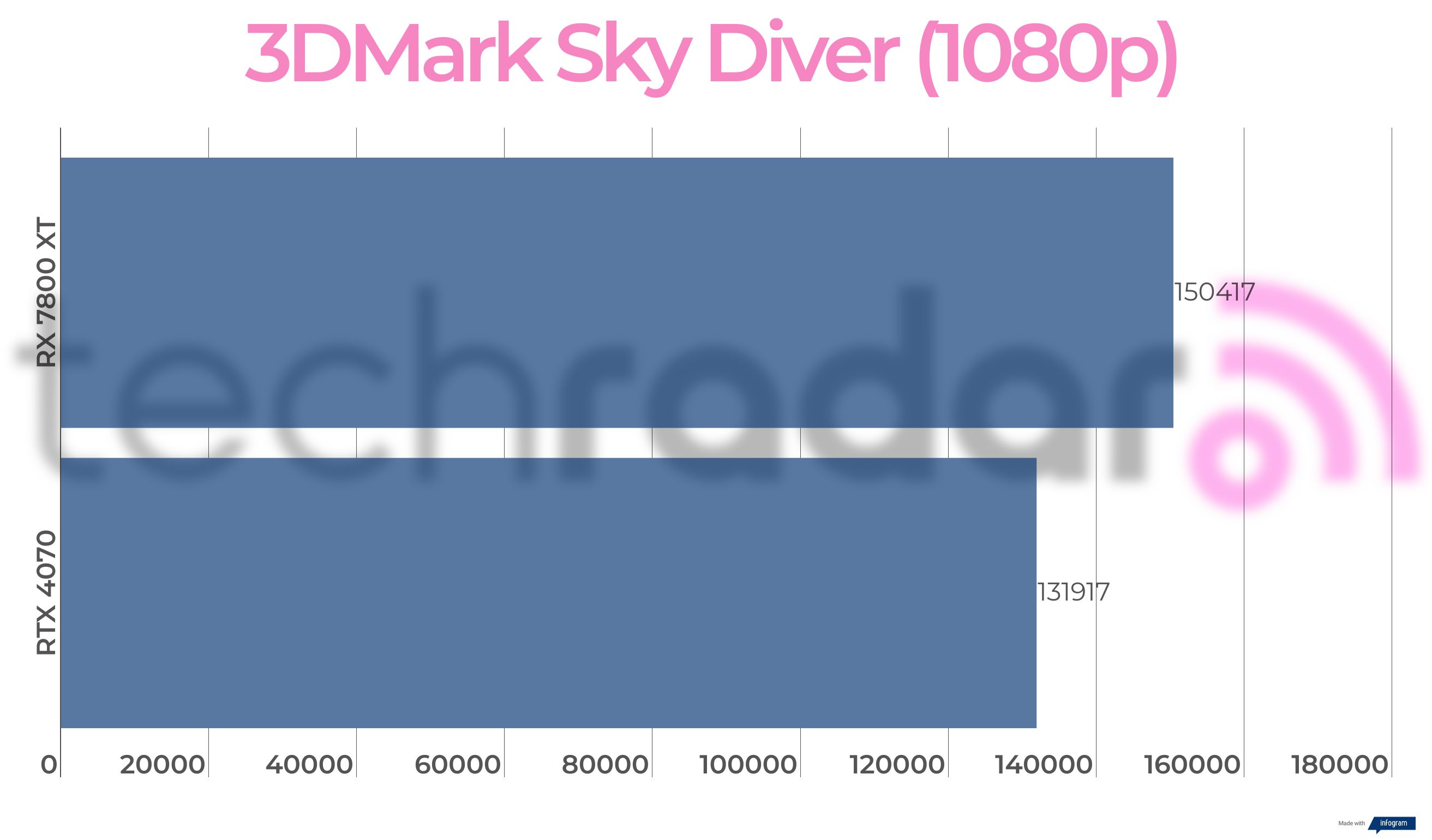
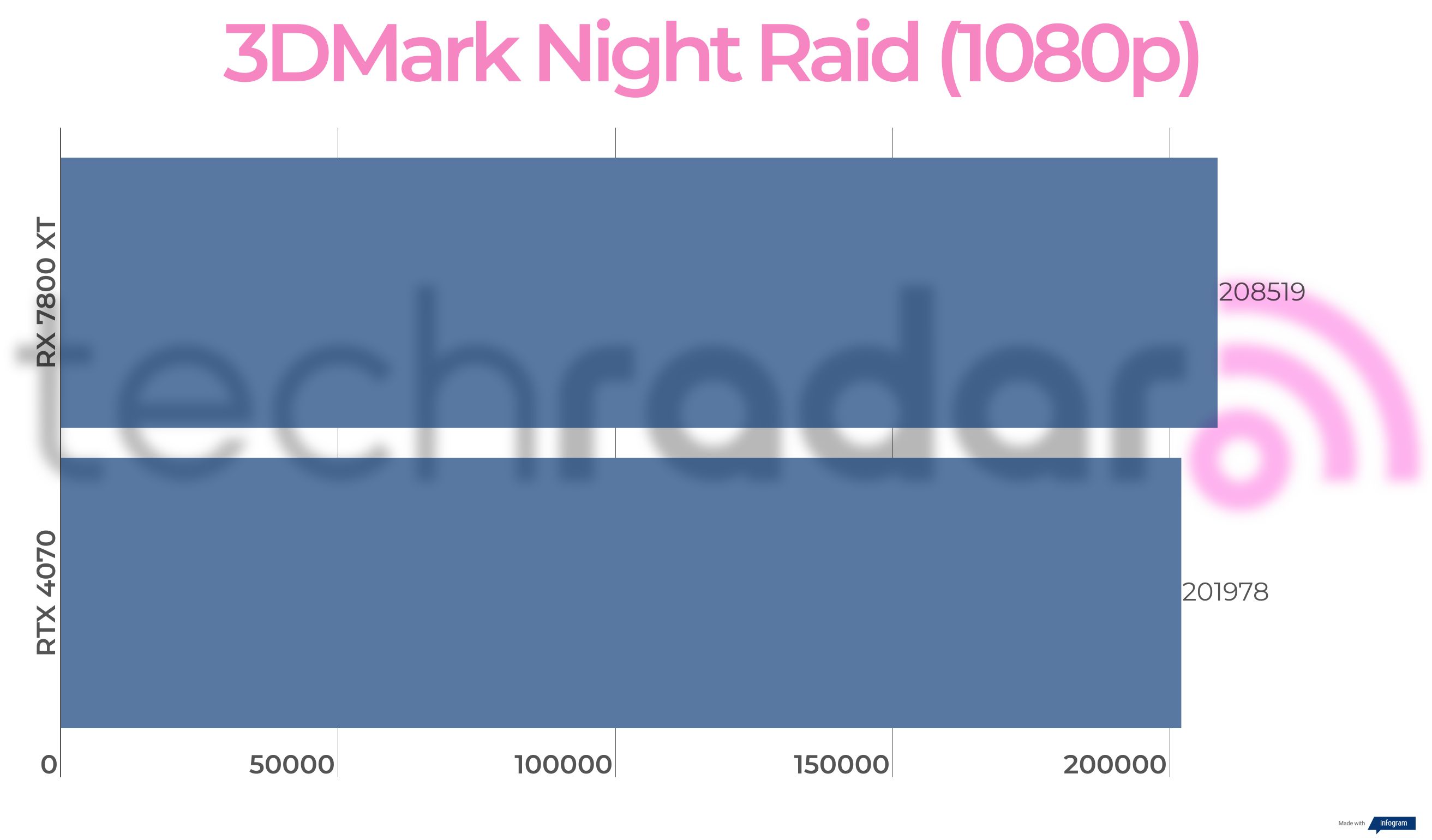
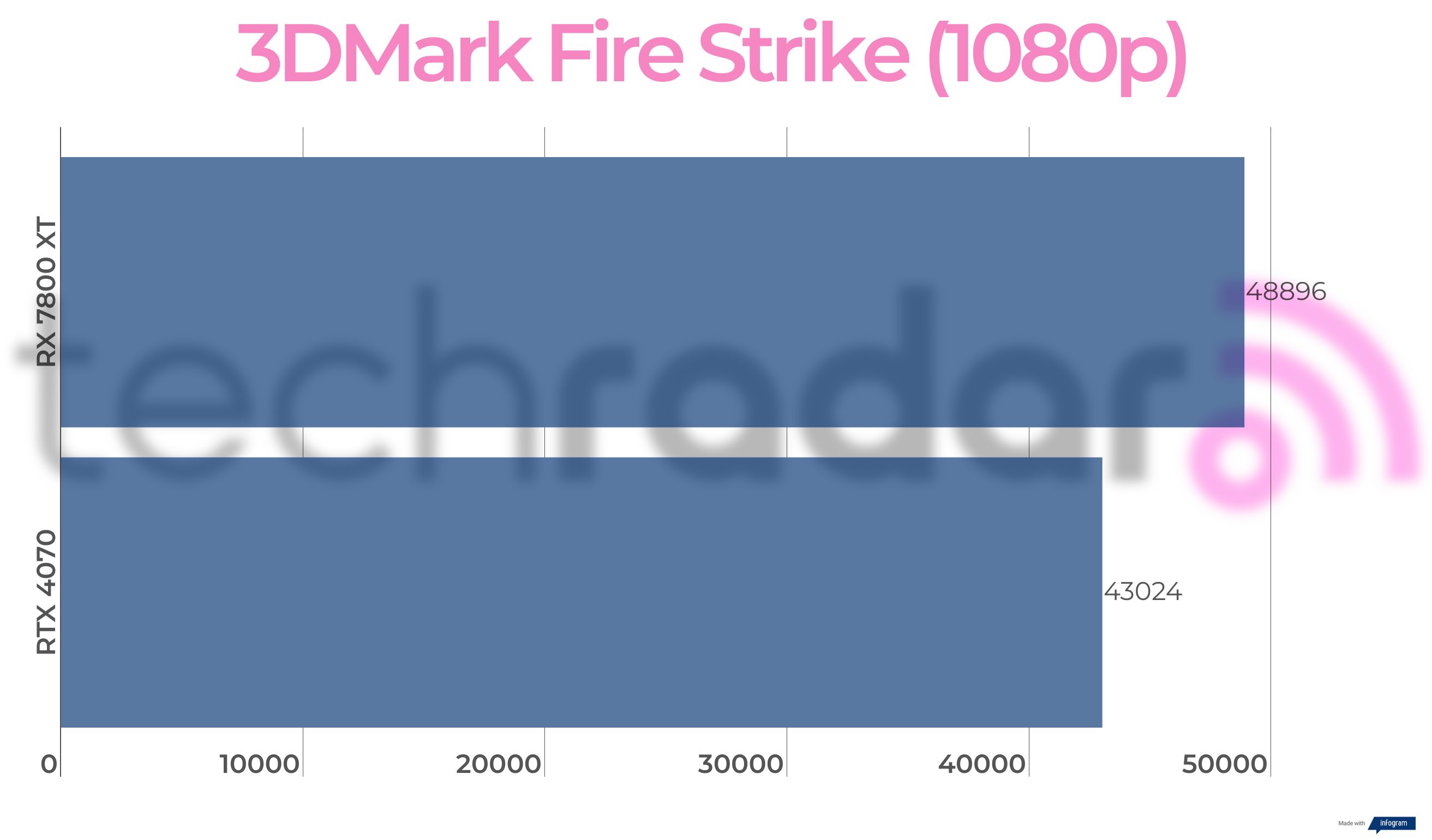
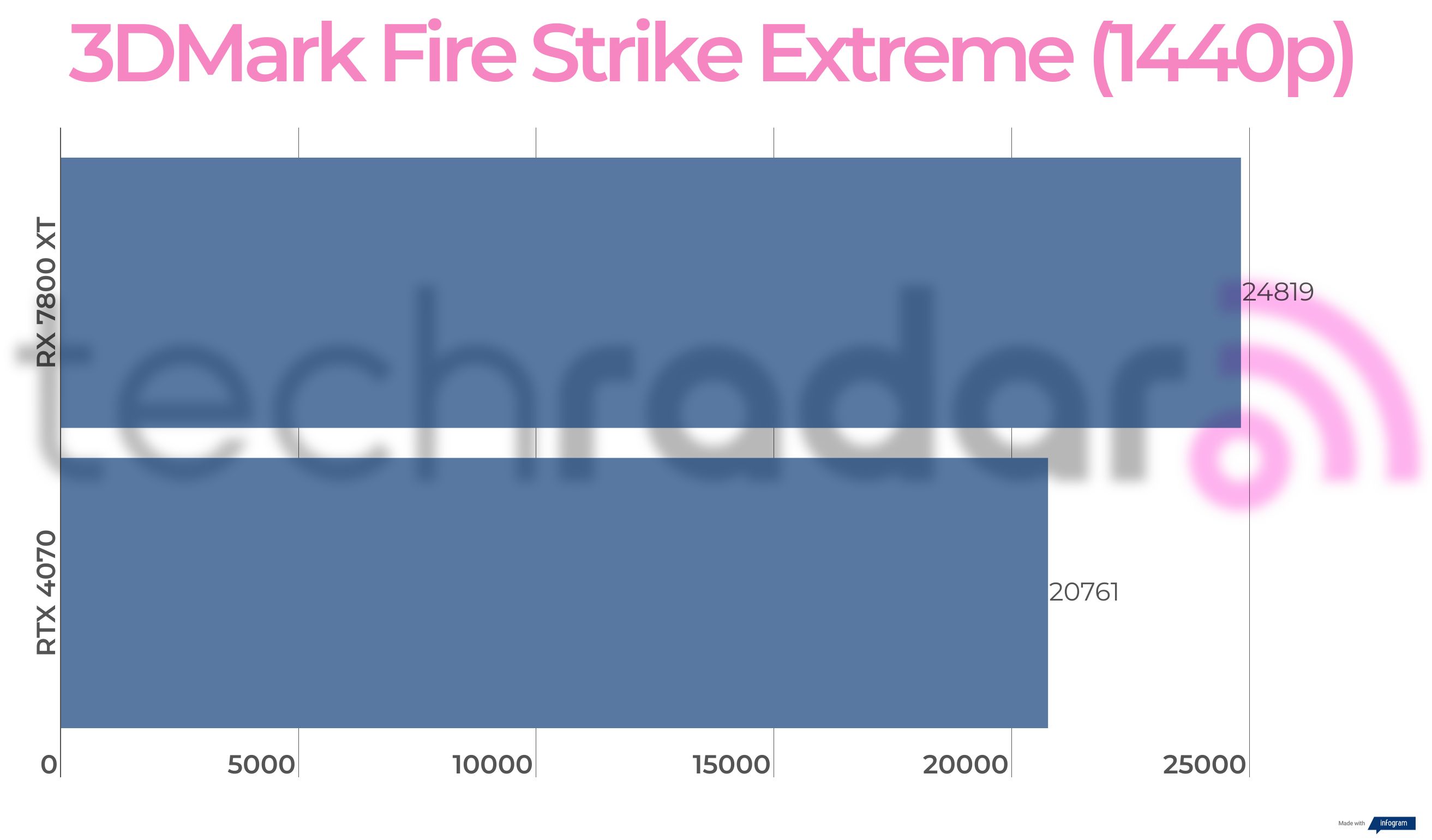
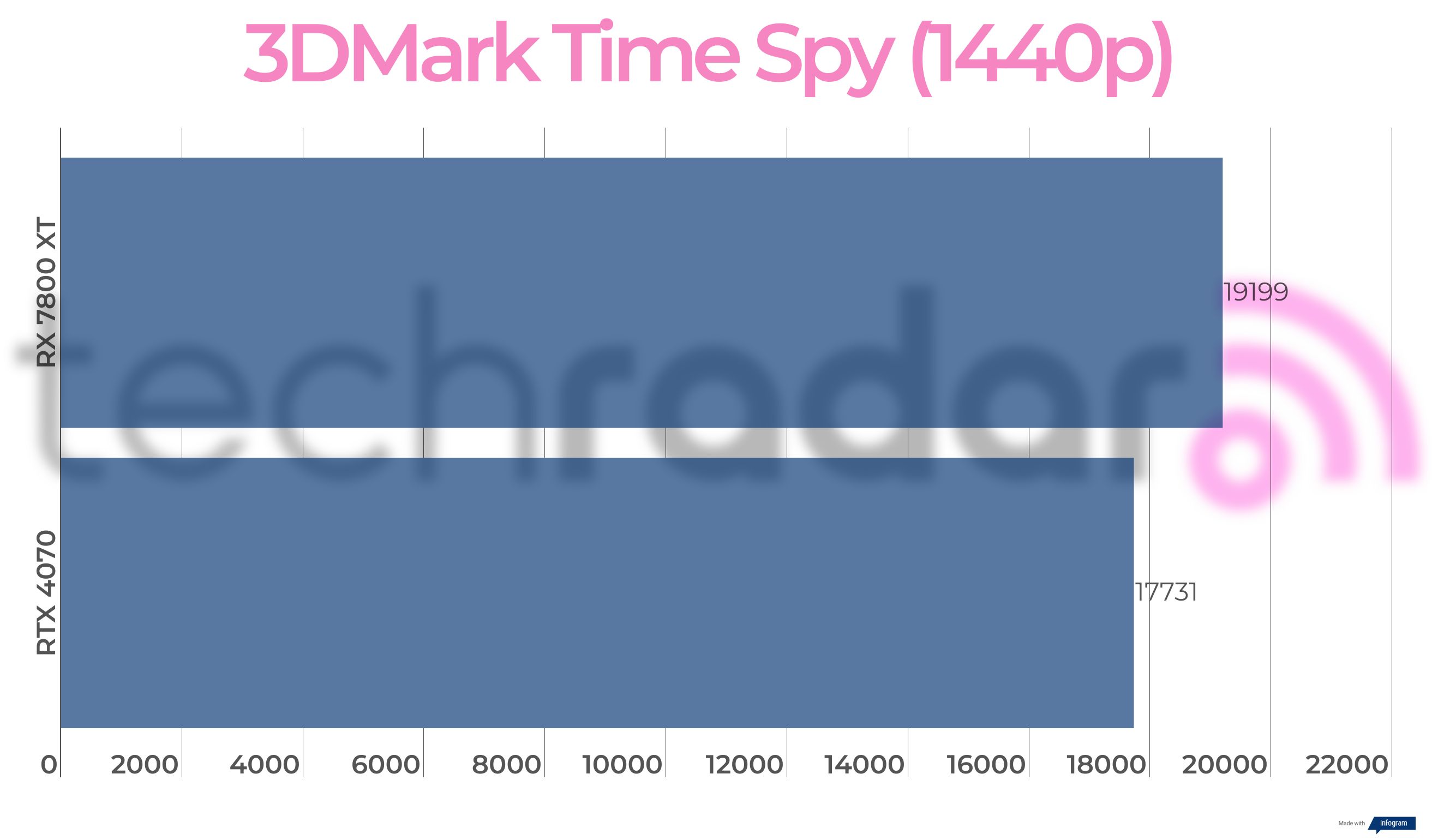
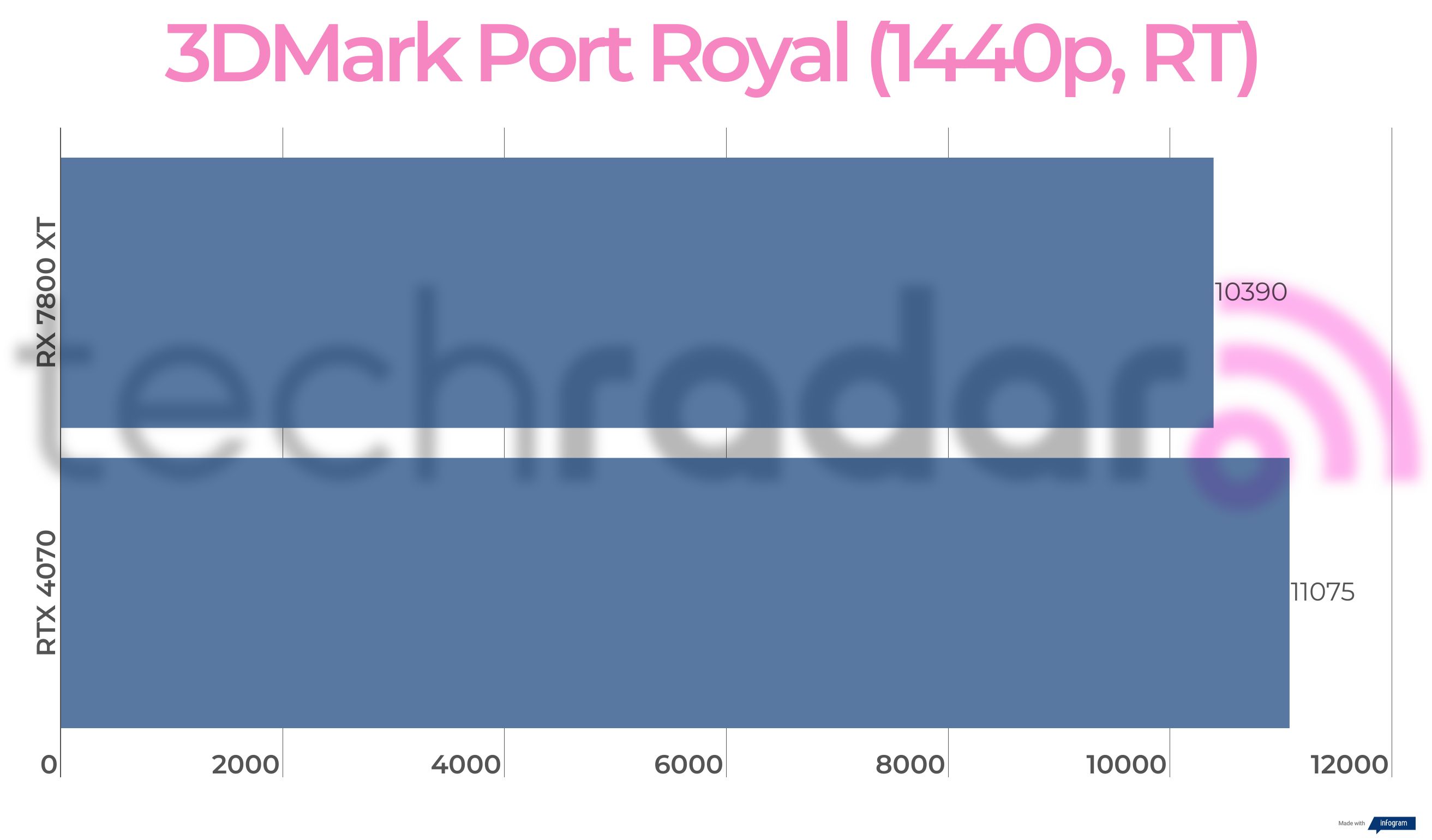
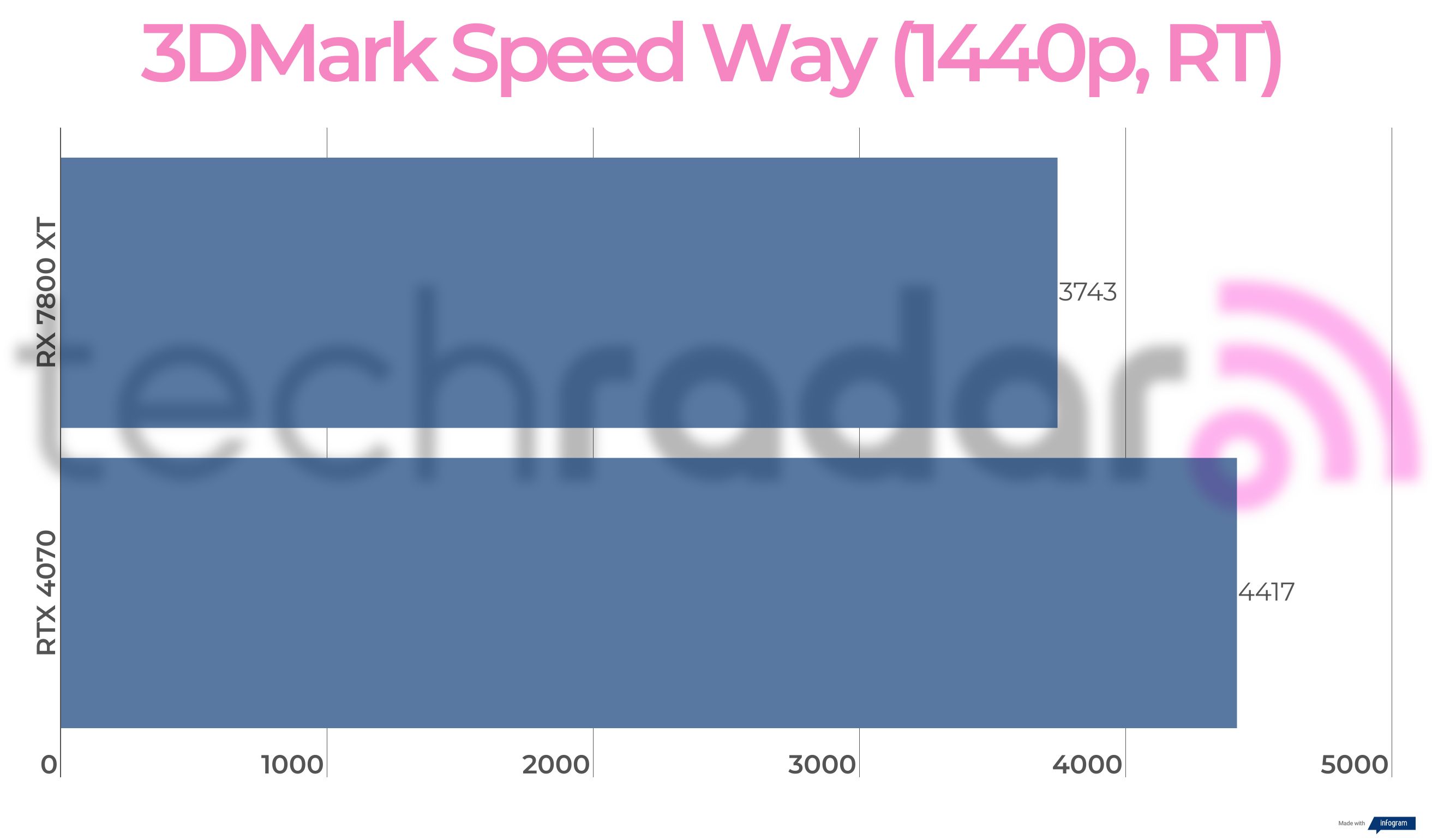
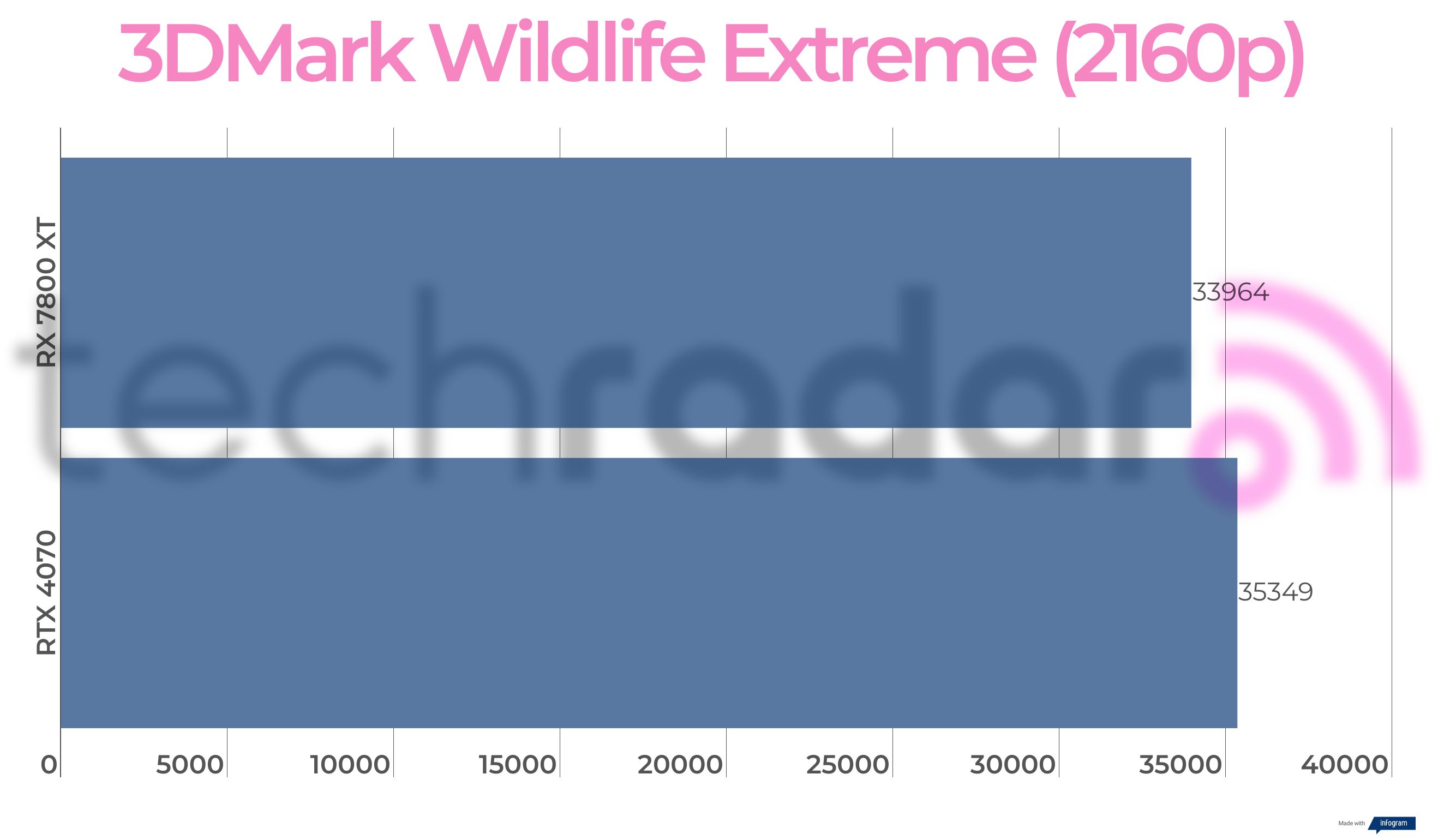
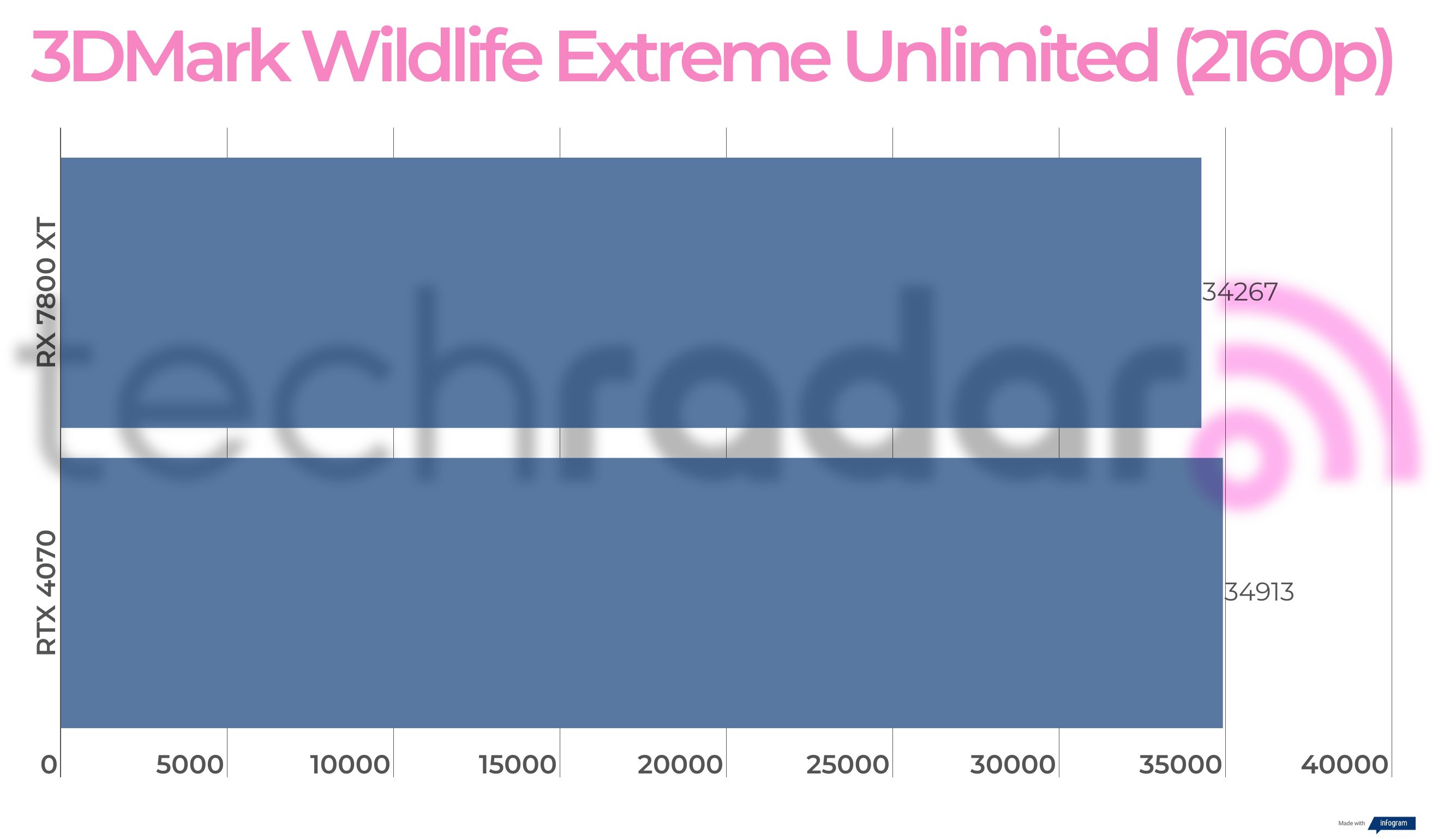
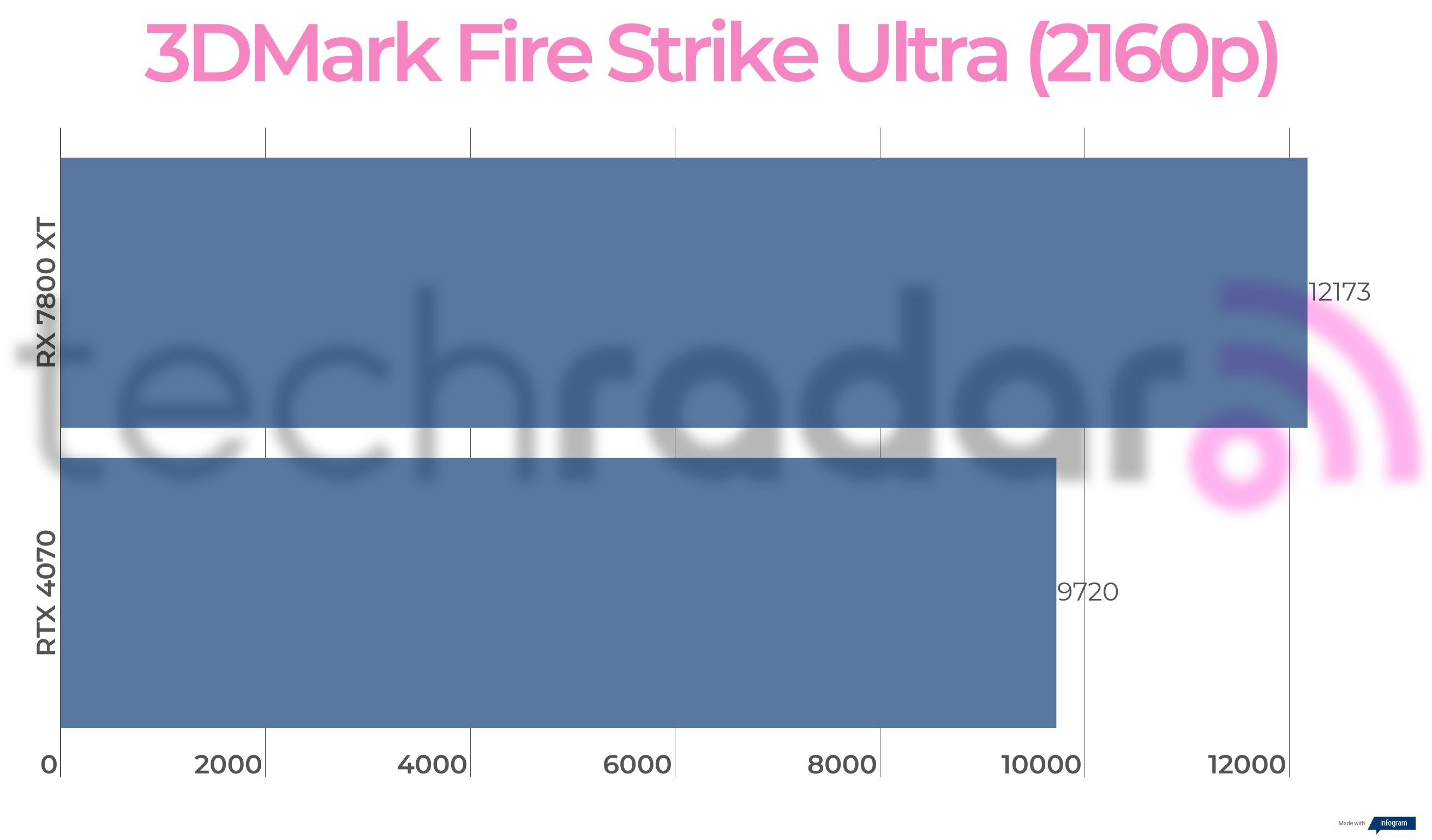
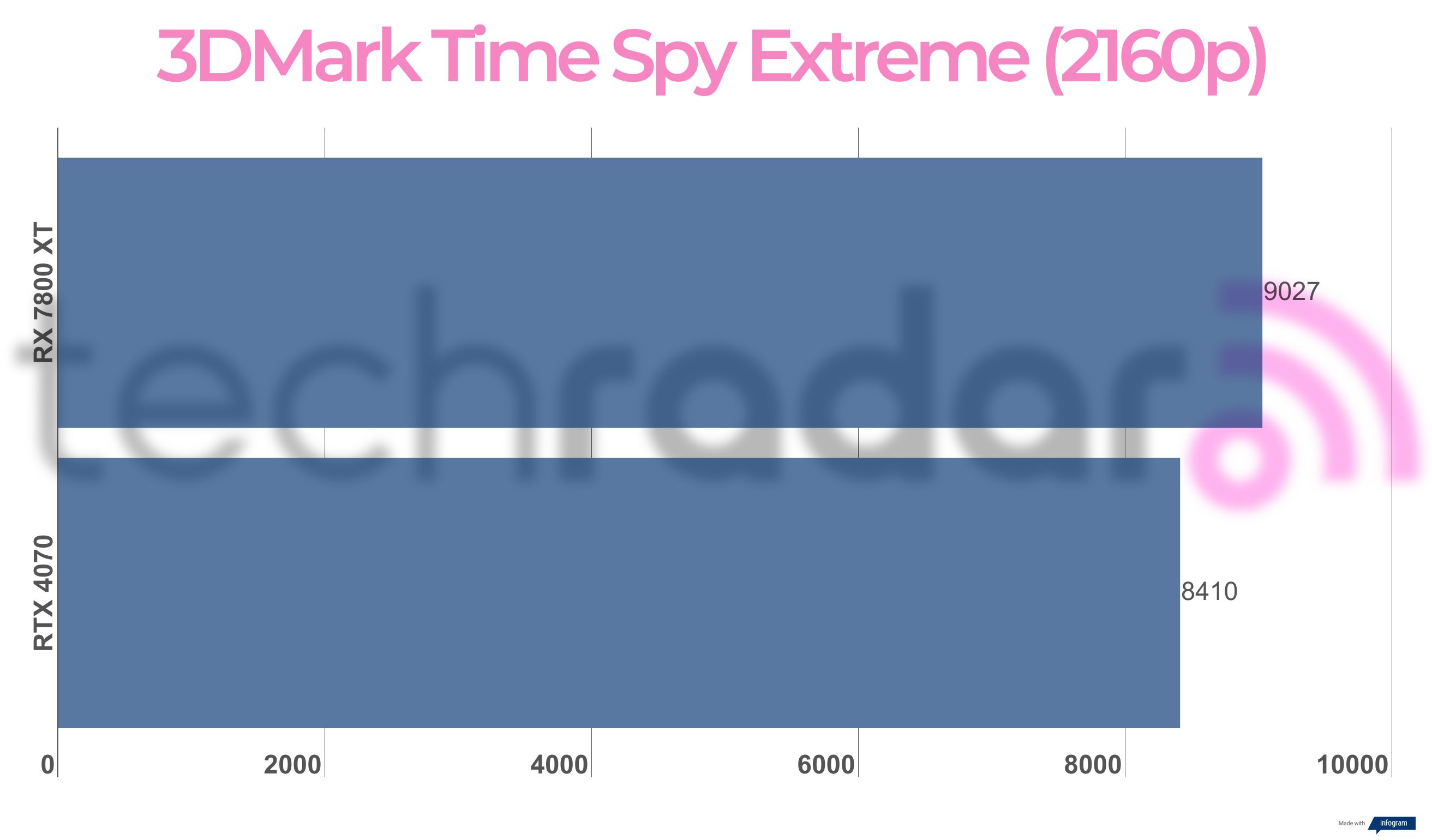
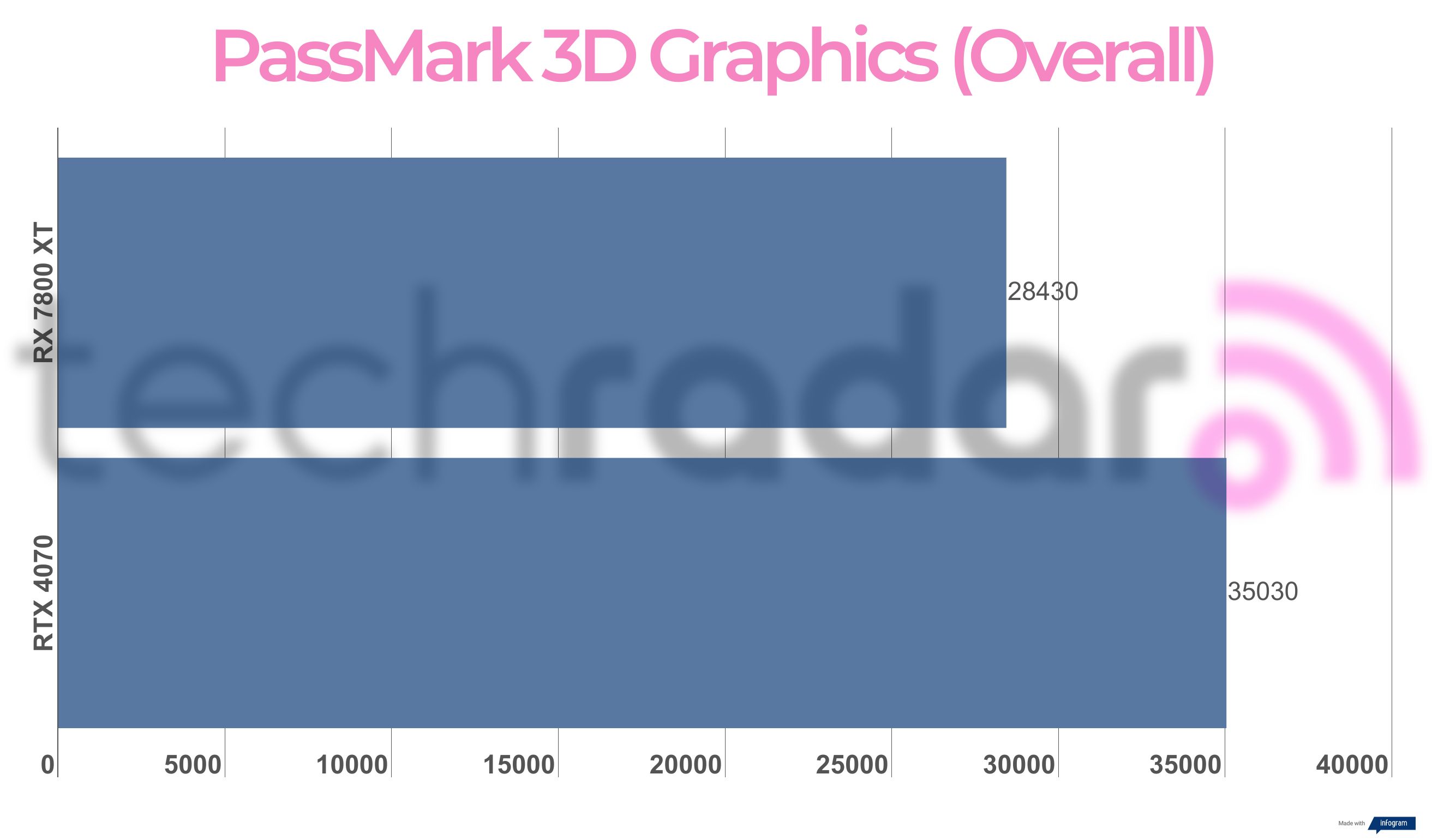
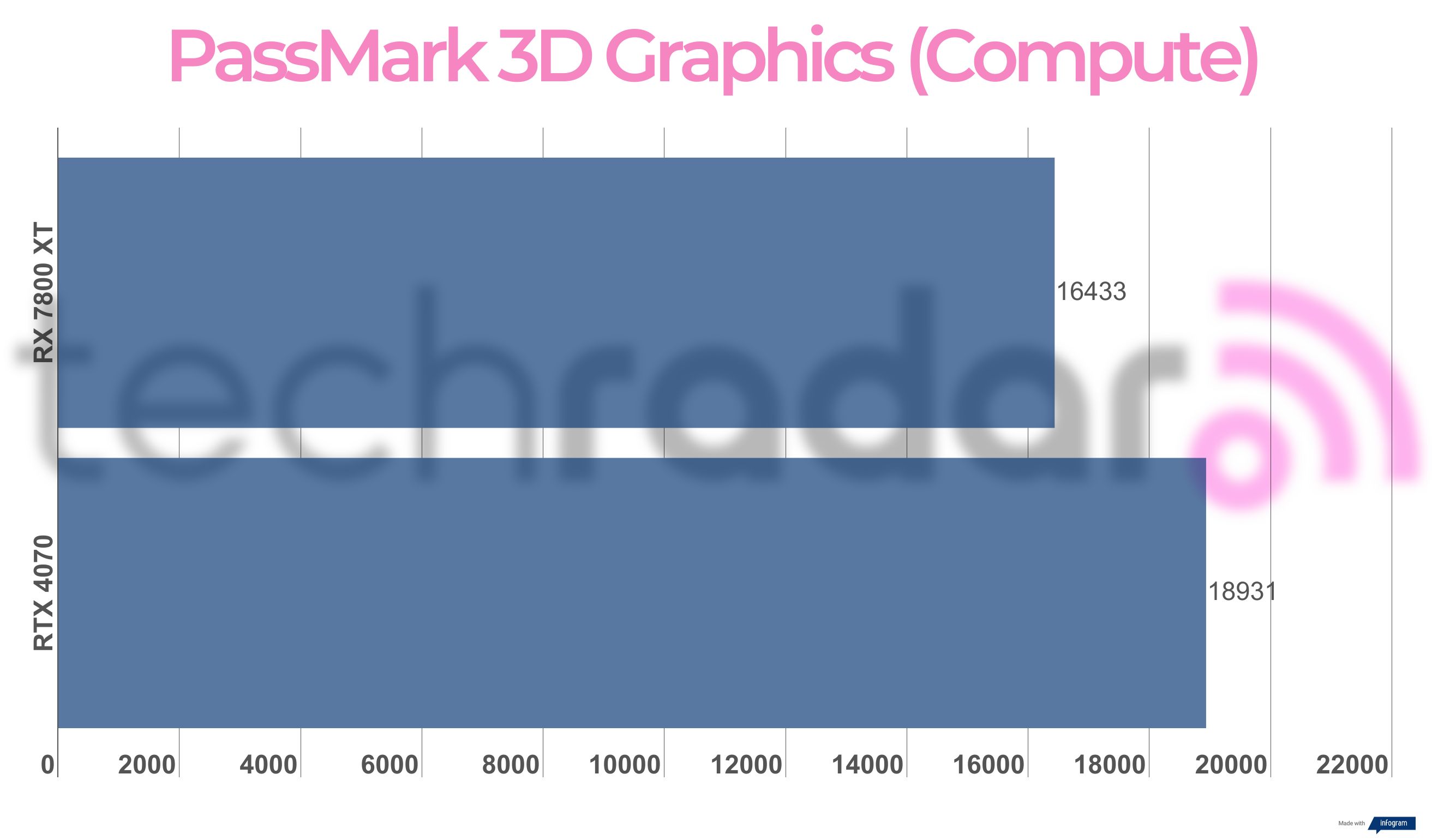
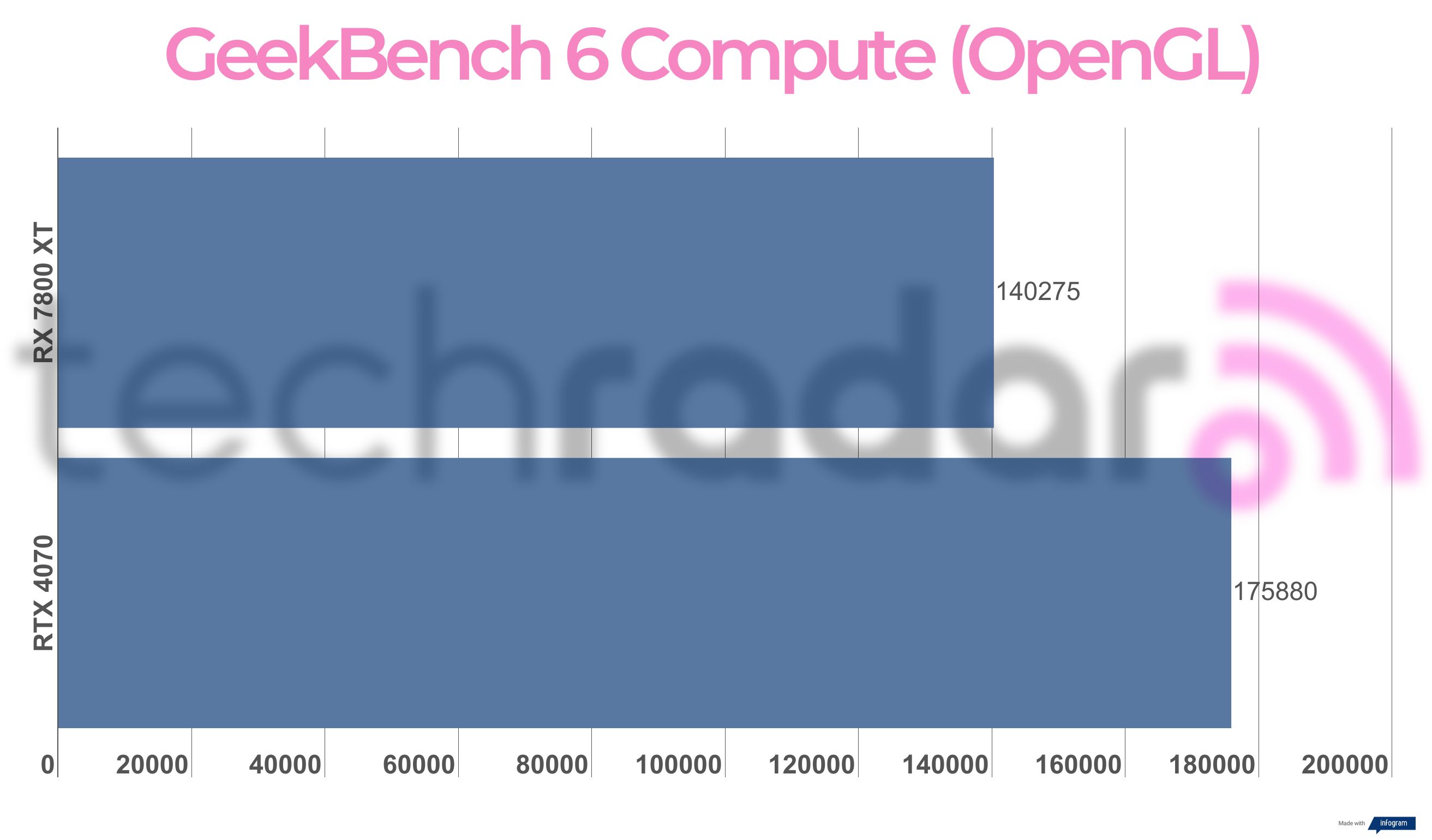
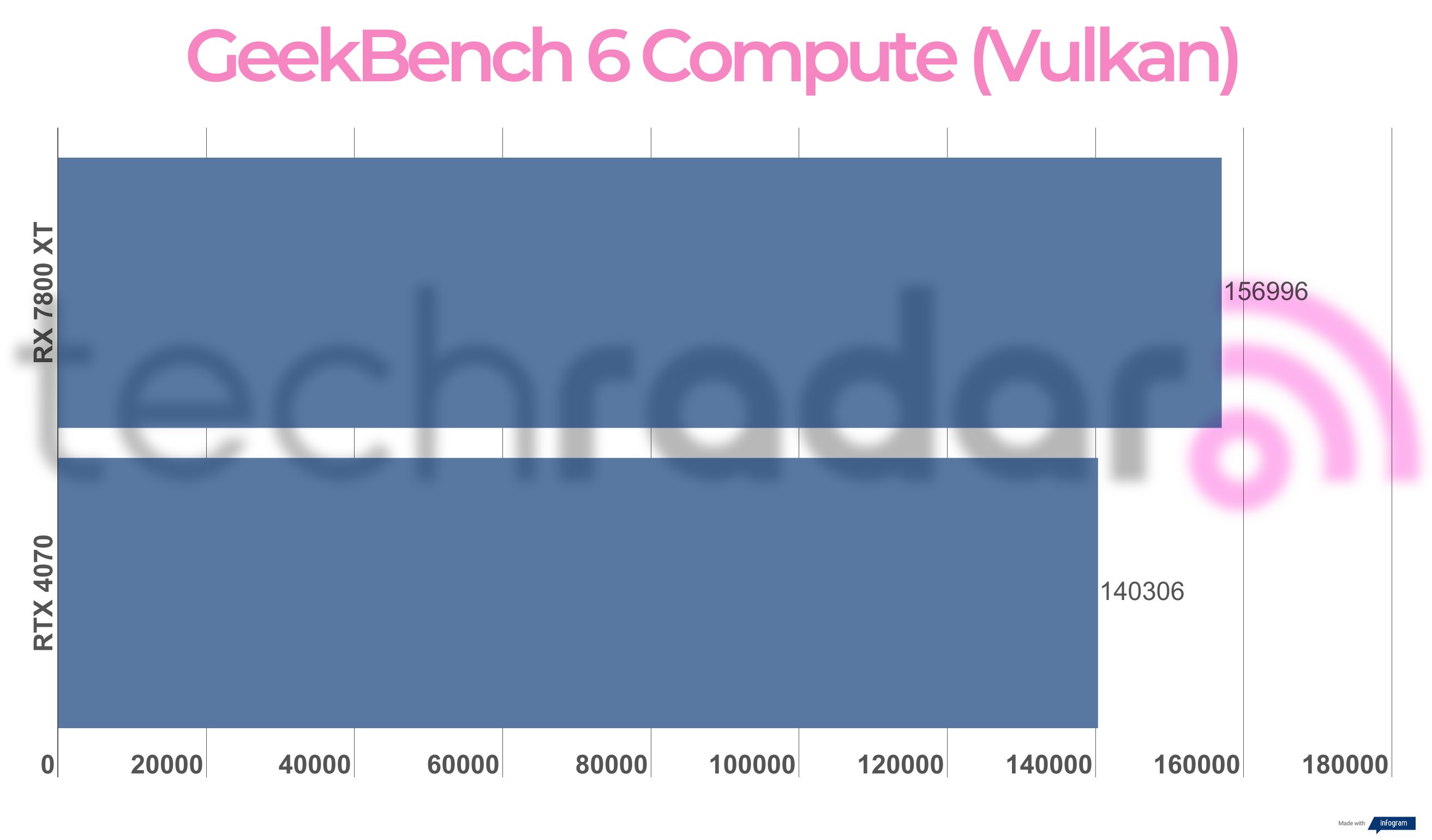
In terms of synthetic performance, the RX 7800 XT wallops the RTX 4070 in rasterization by as much as 25% (in 3DMark Fire Strike Ultra), while keeping the RTX 4070 from completely running away in ray tracing workloads like 3DMark Speed Way, where it kept to within about 15% of Nvidia's winning score.
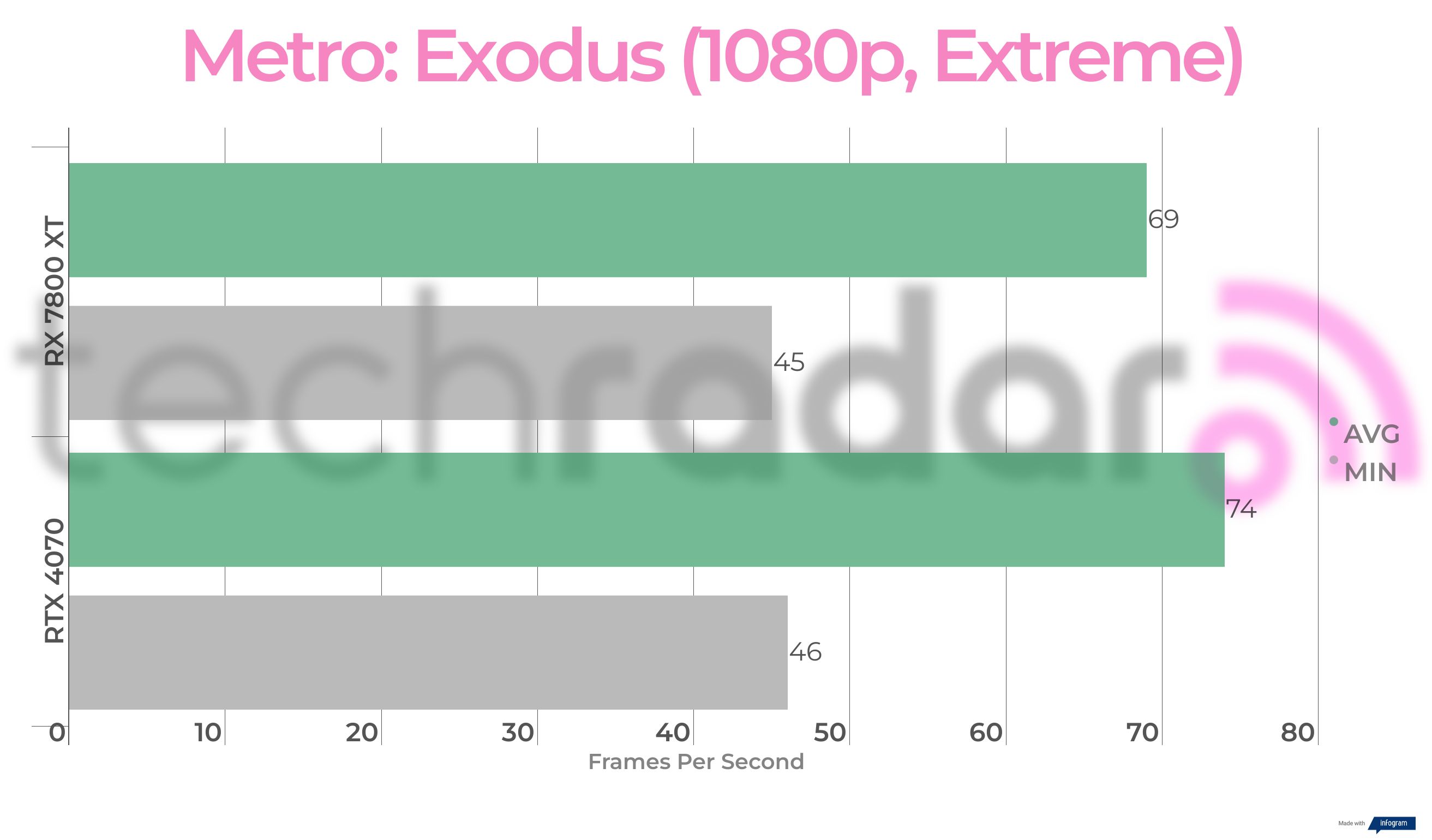
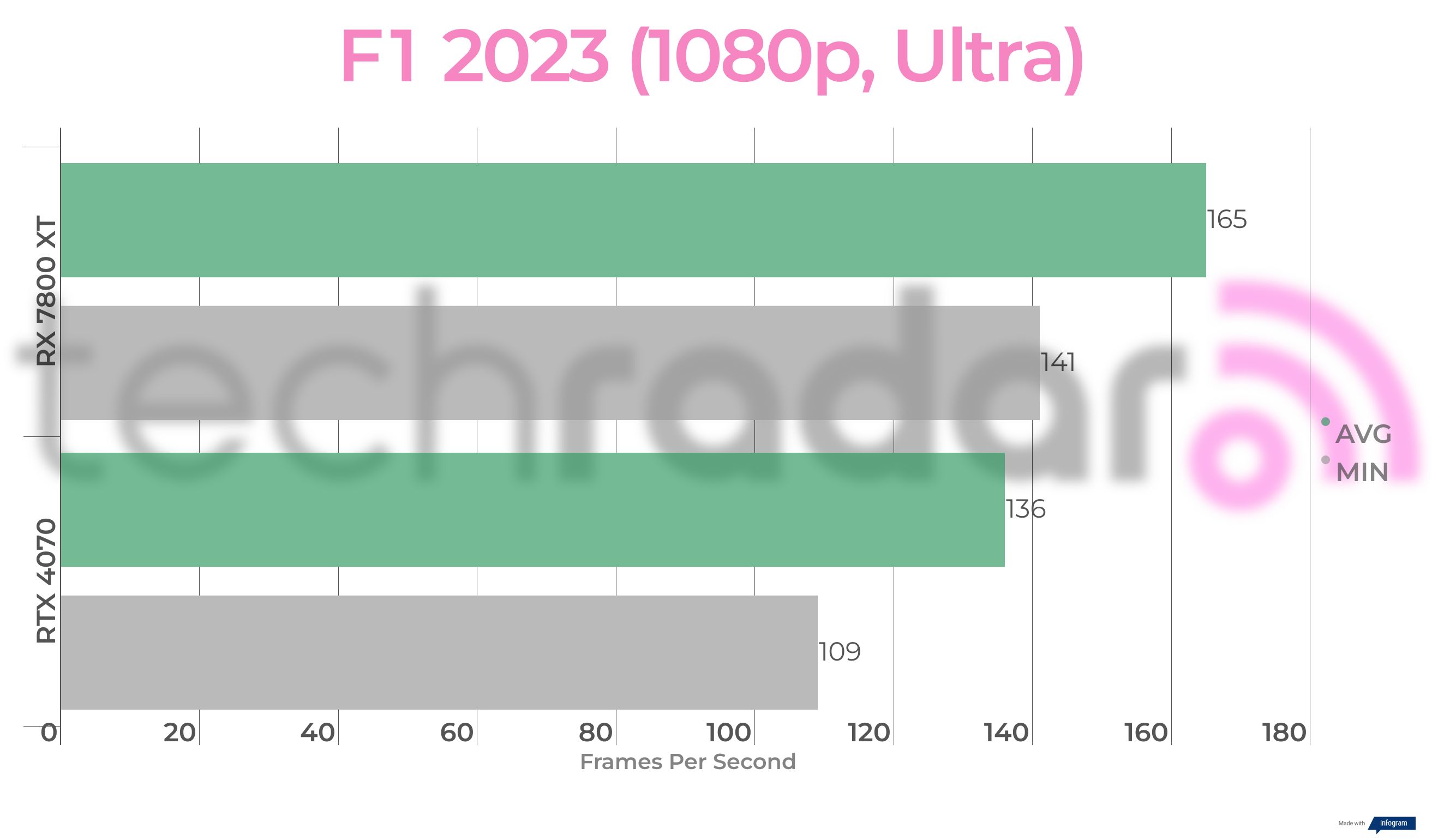
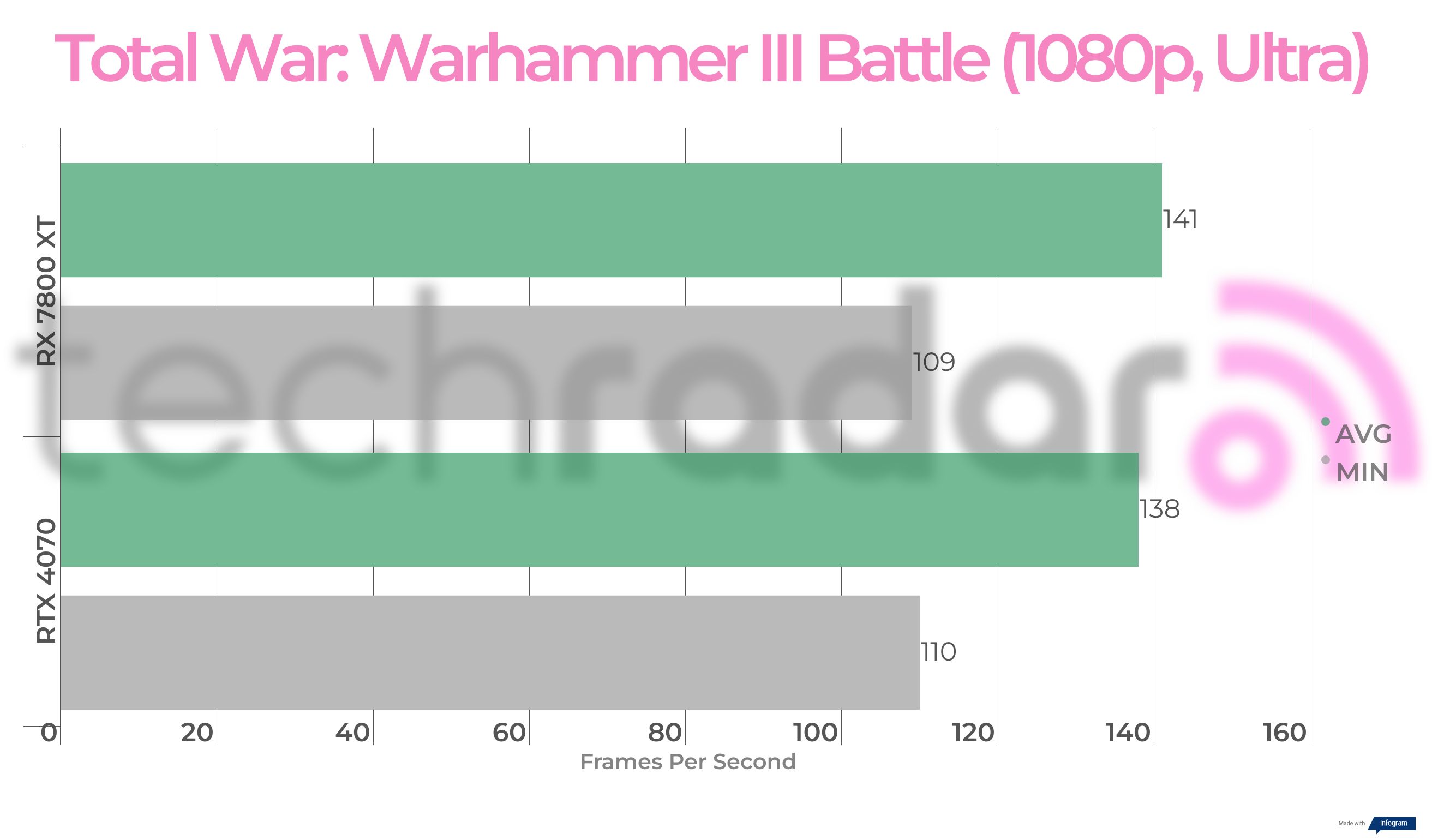
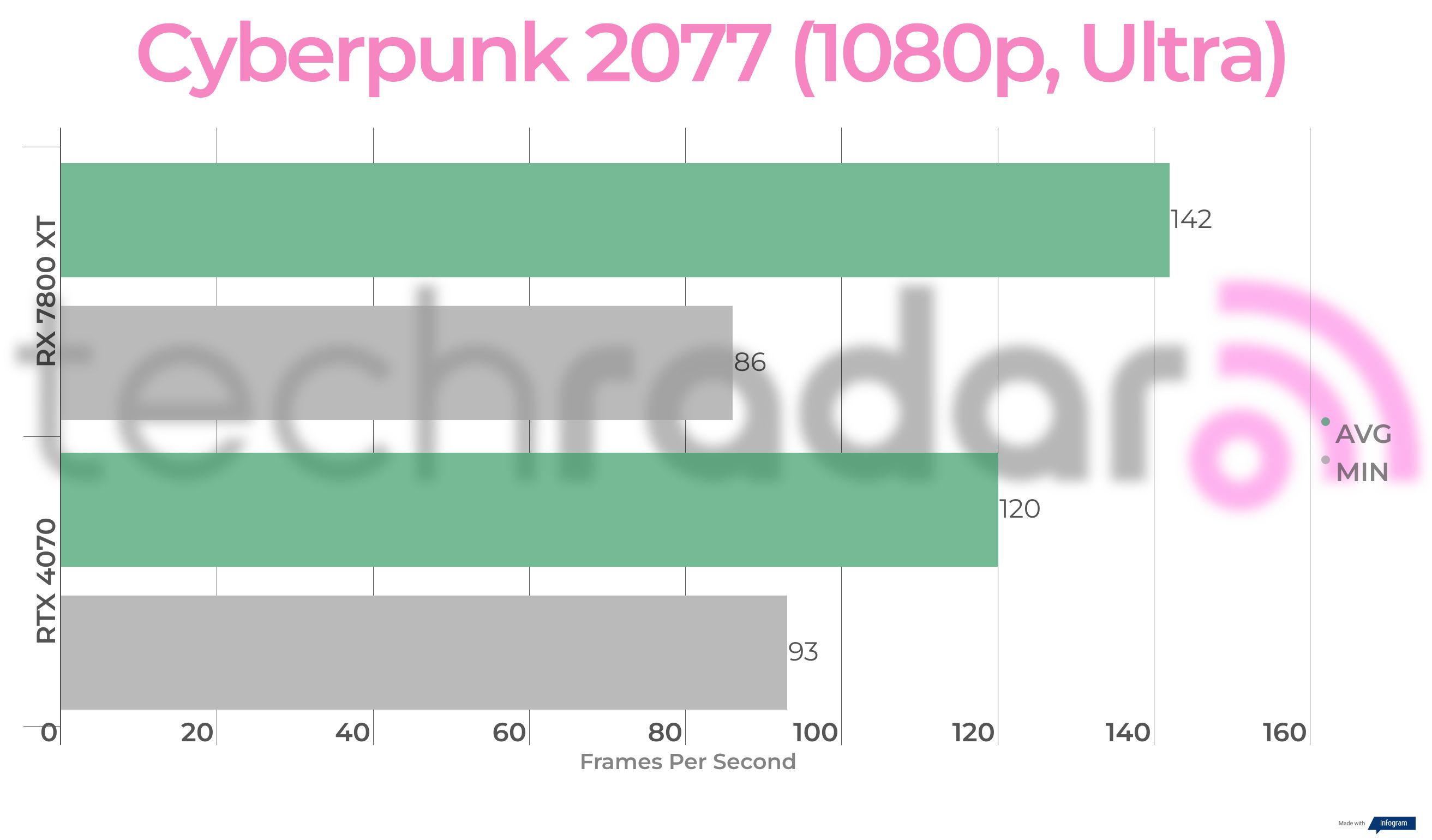
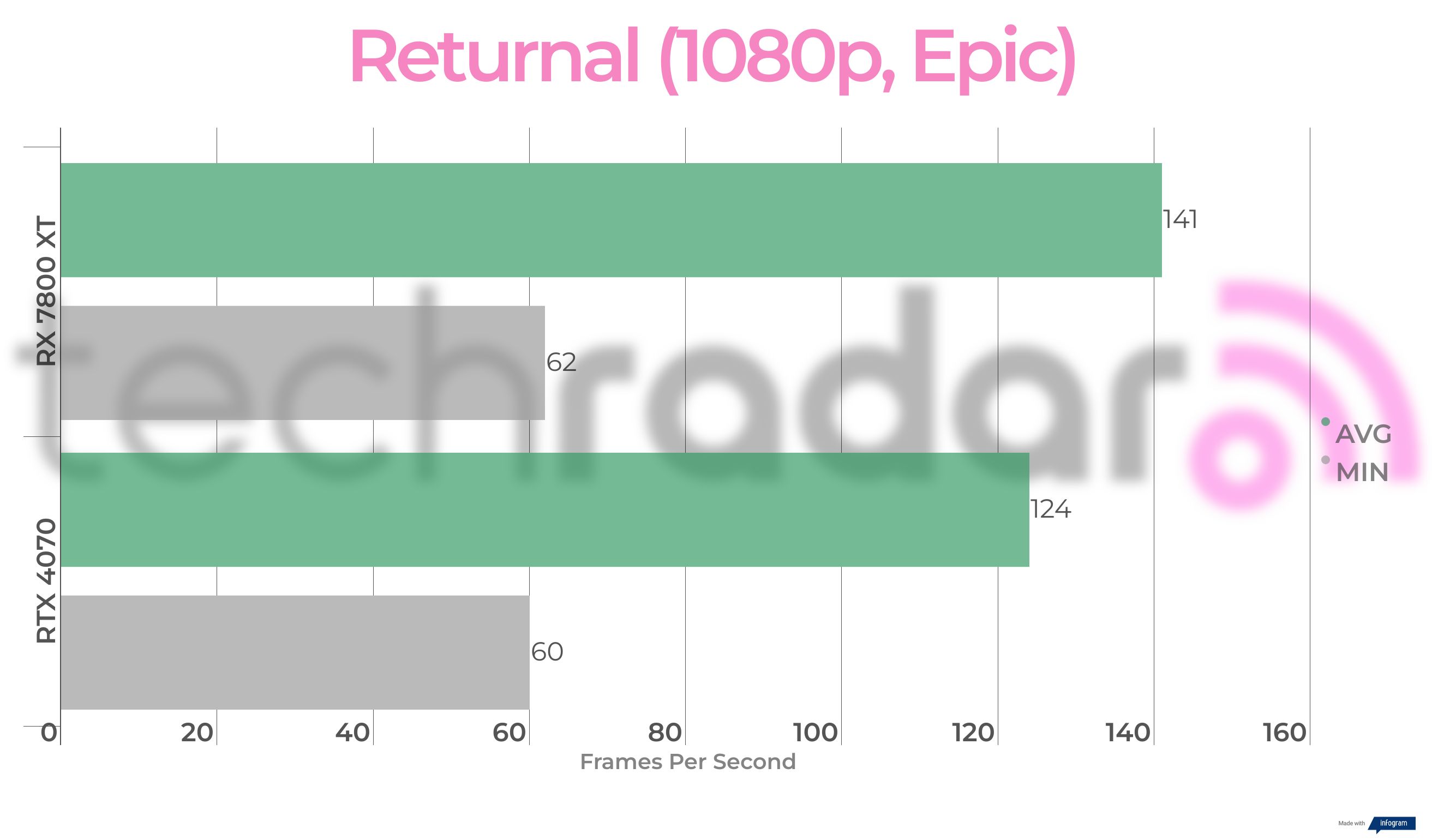
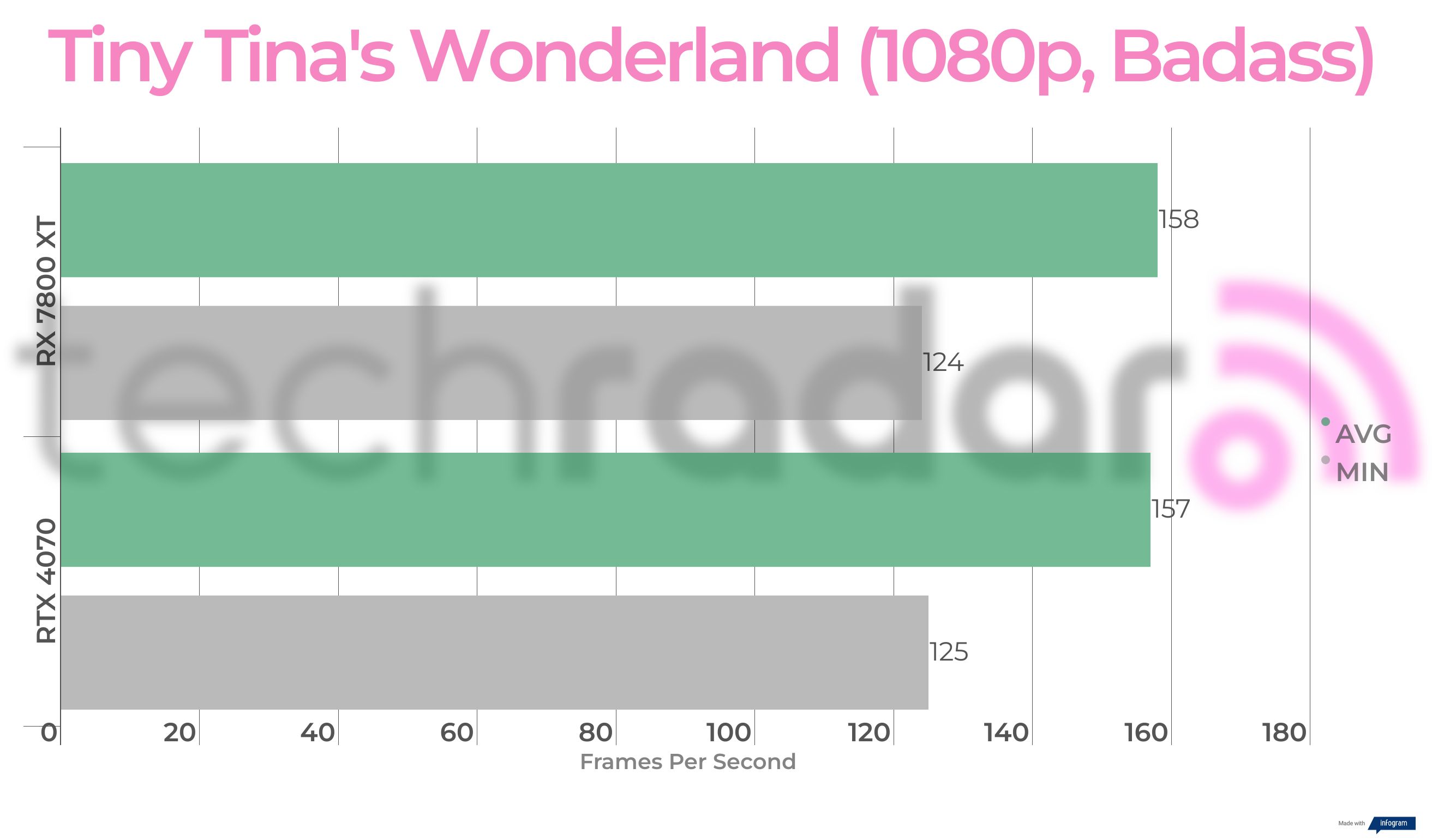
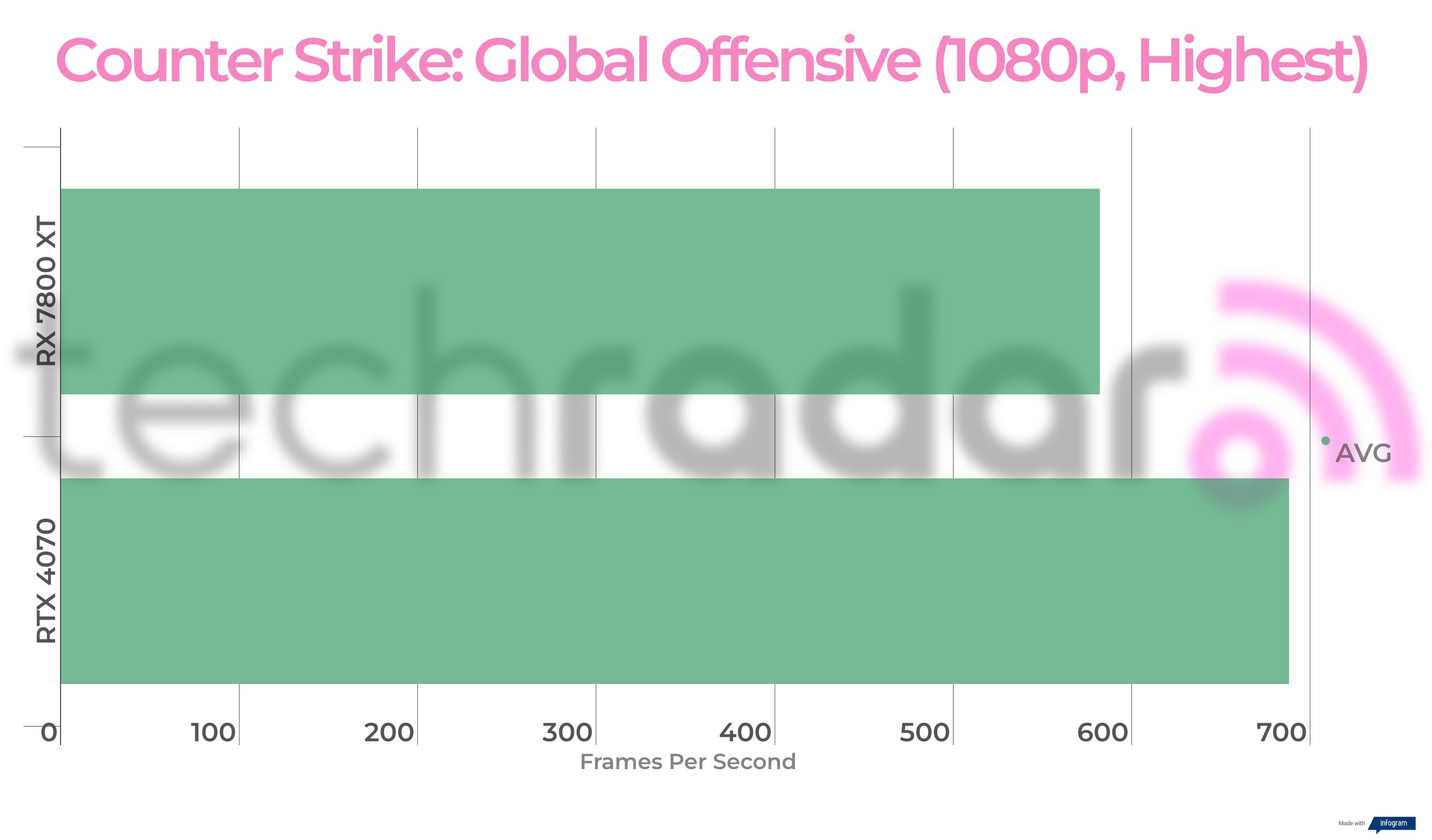
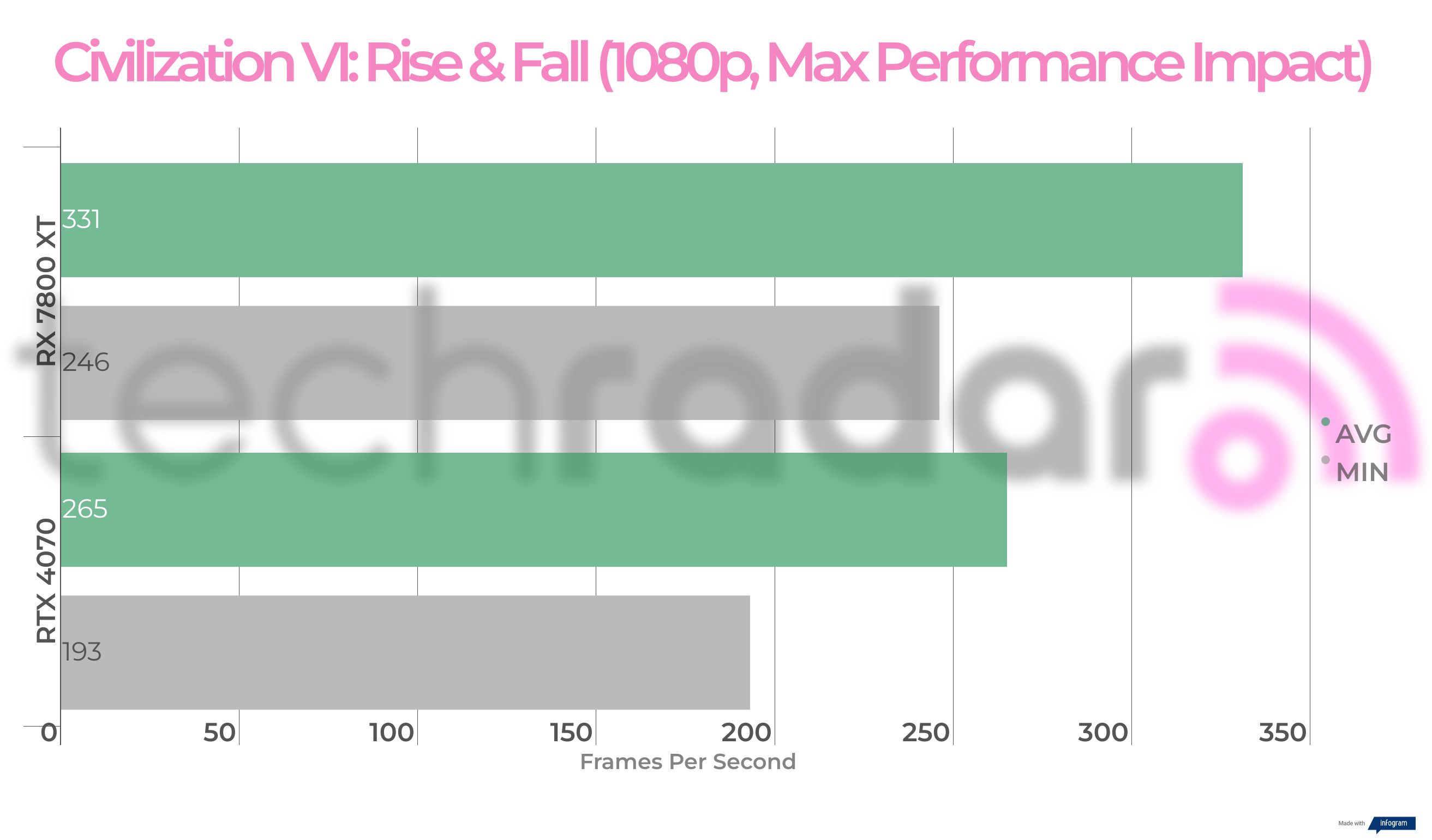
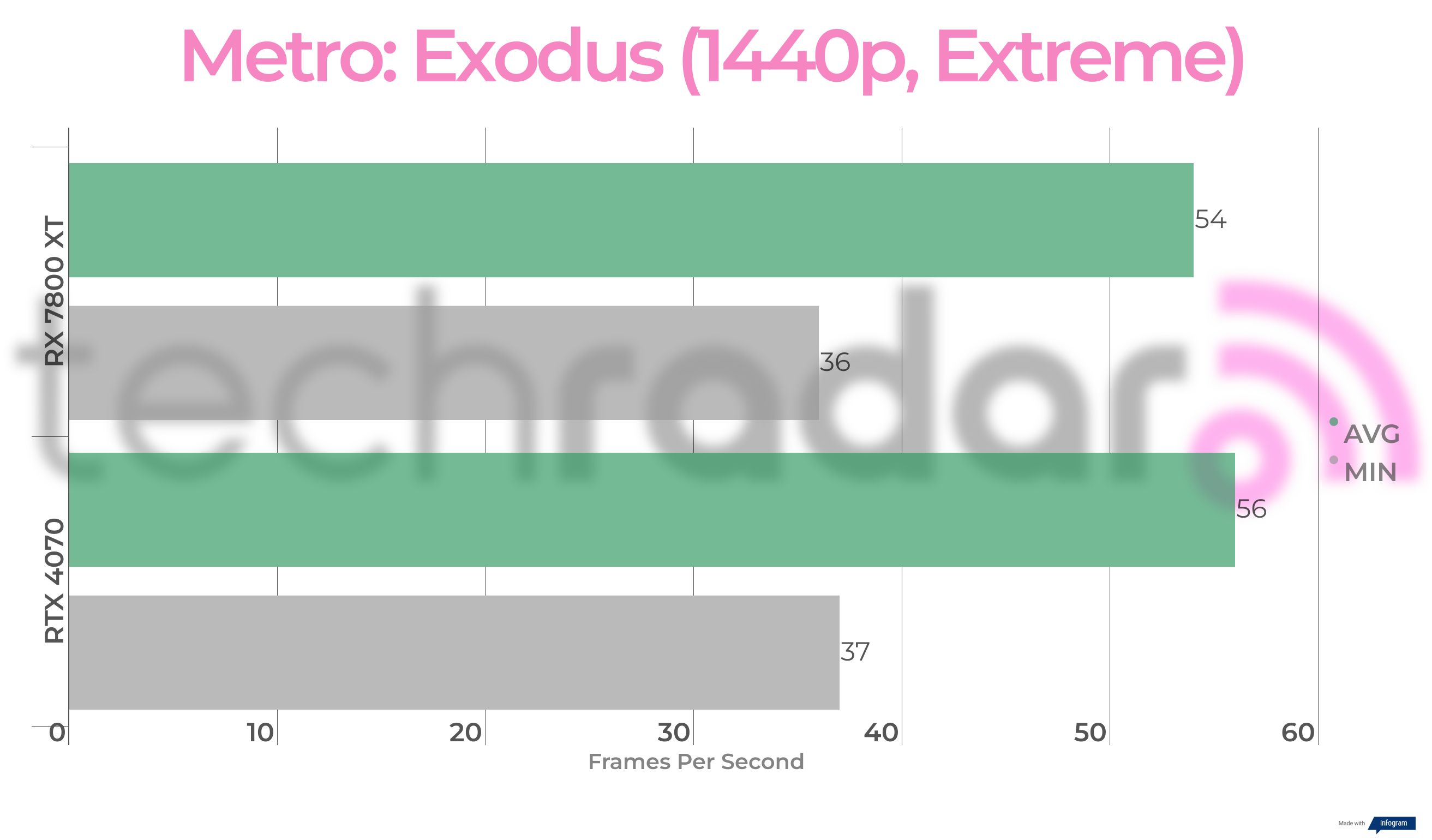
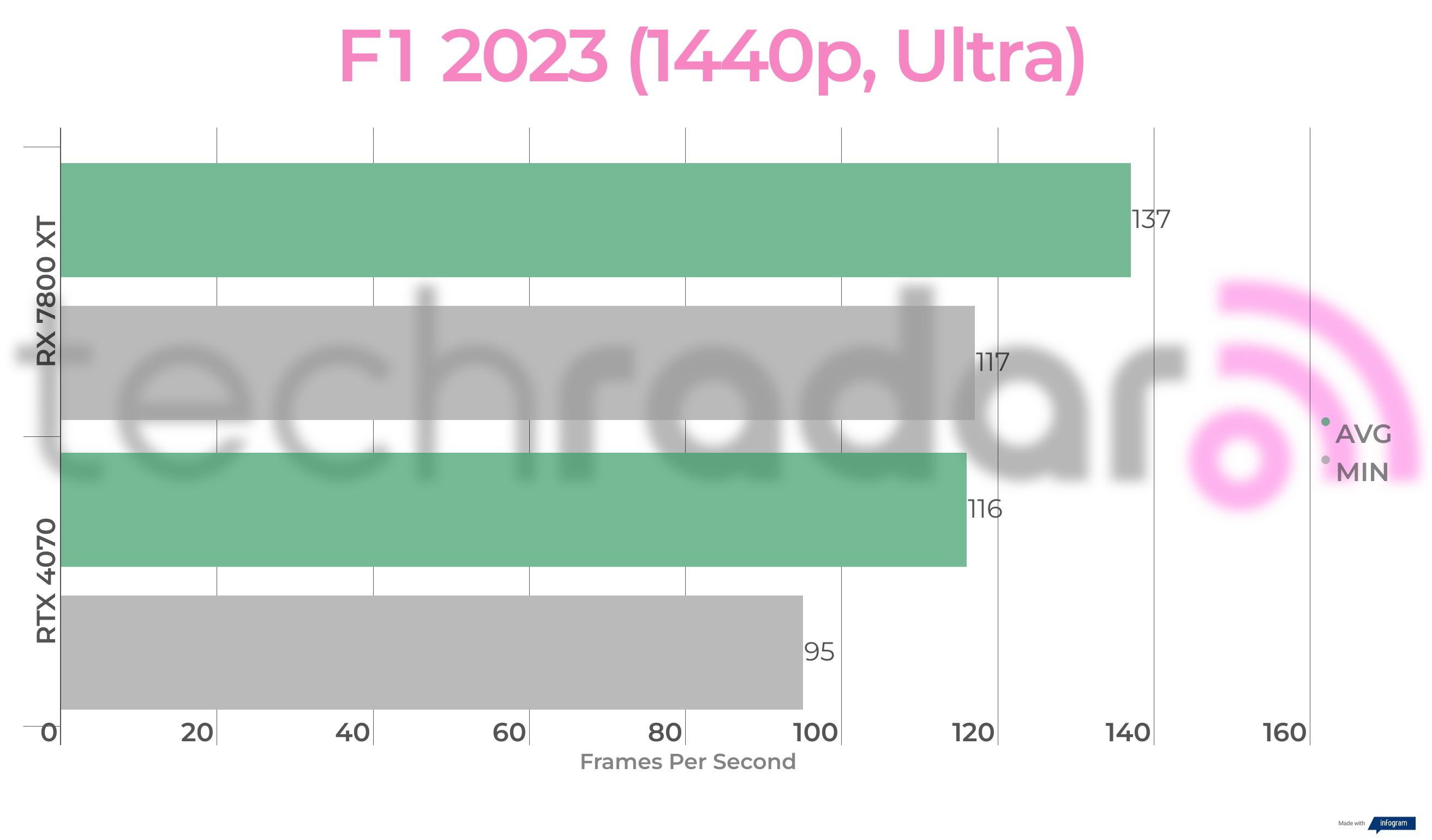
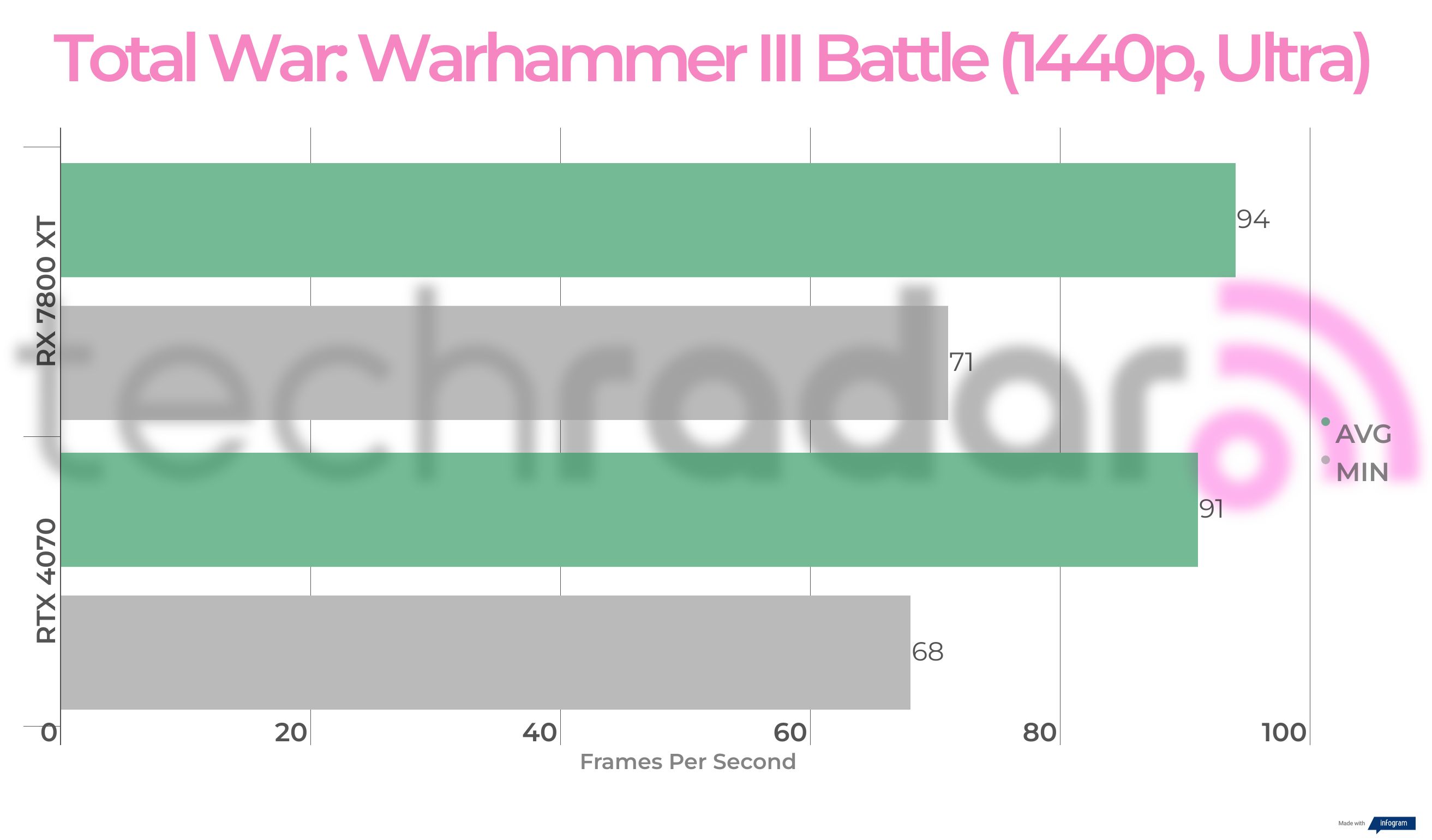
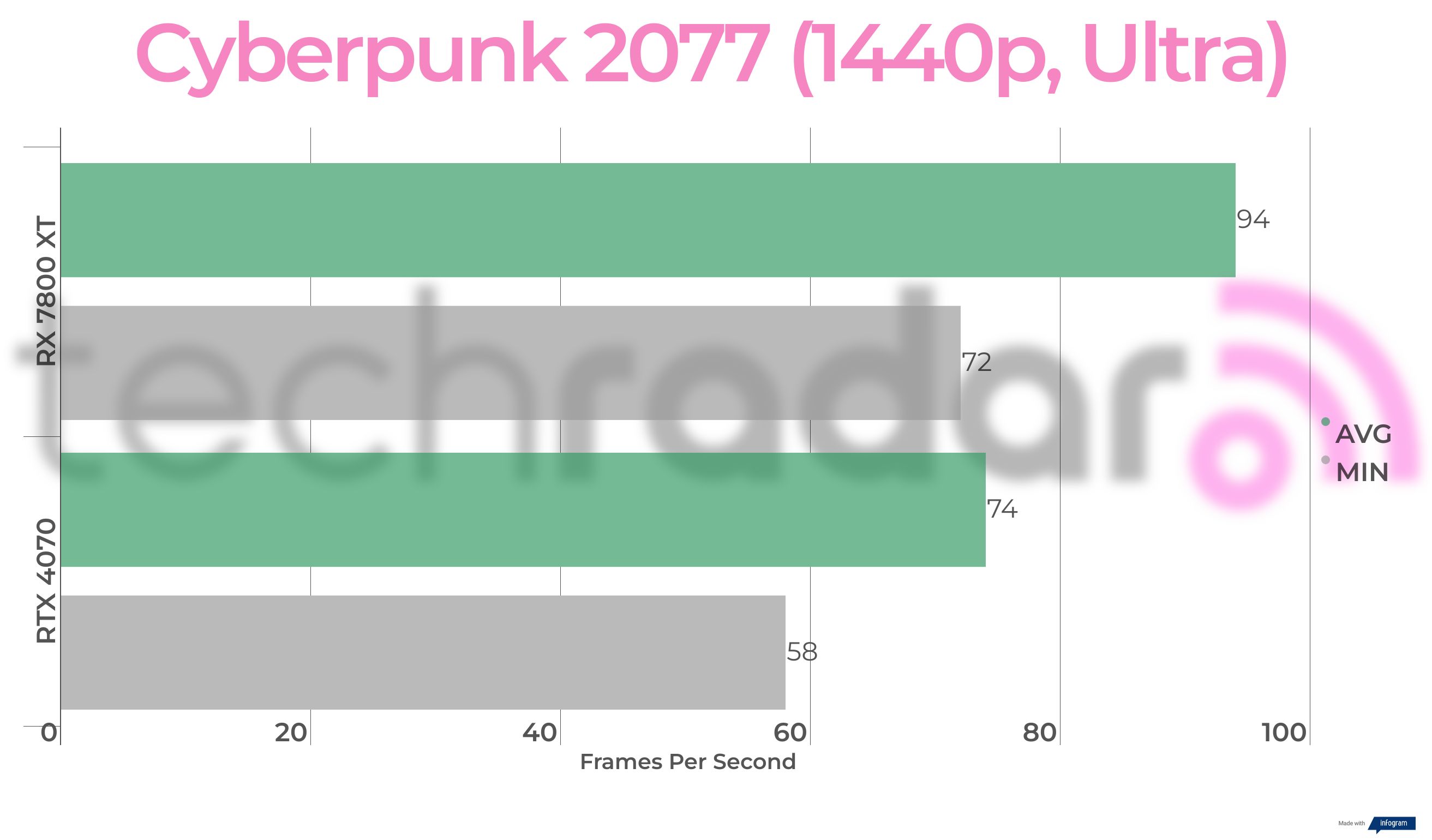
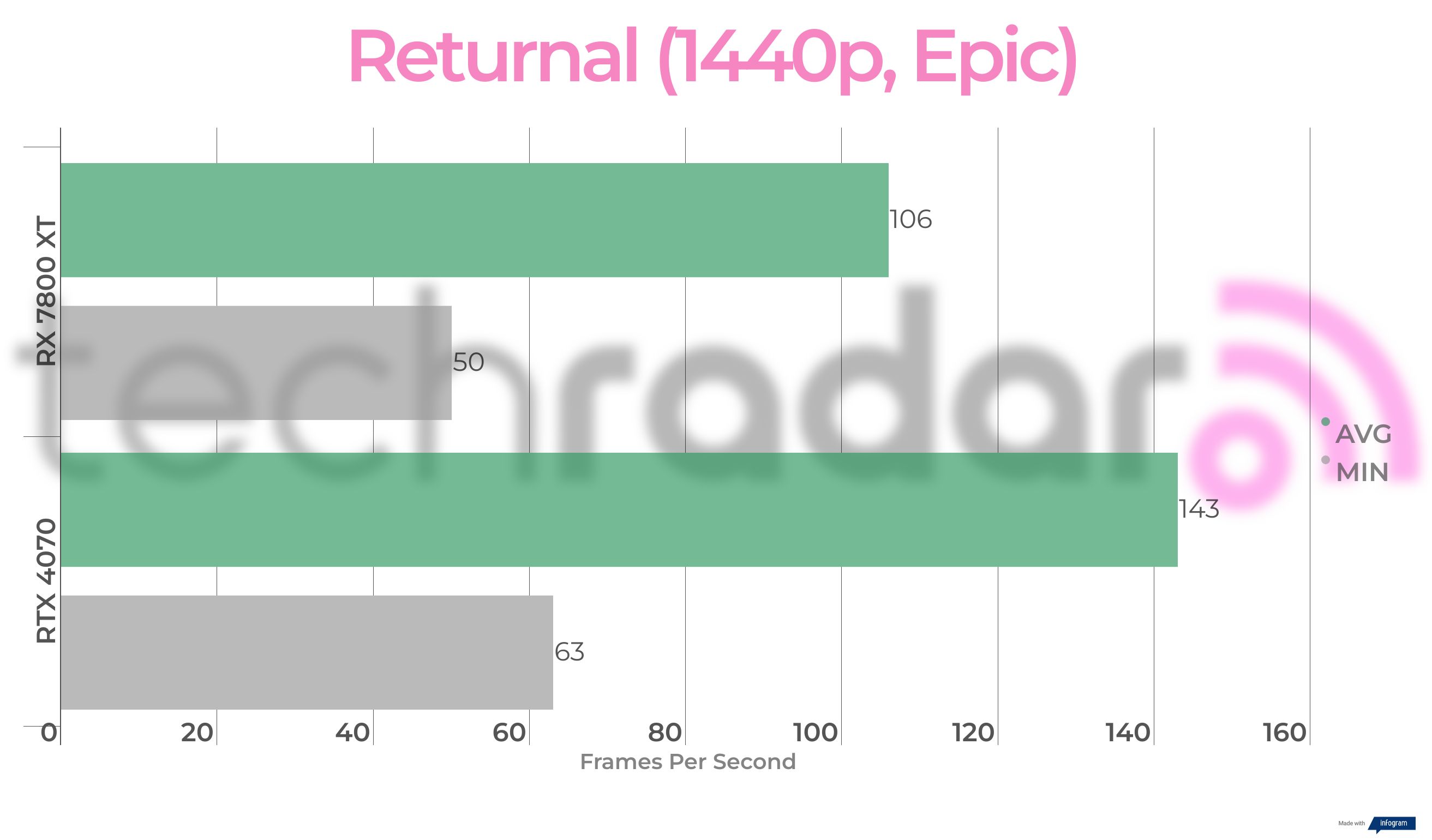
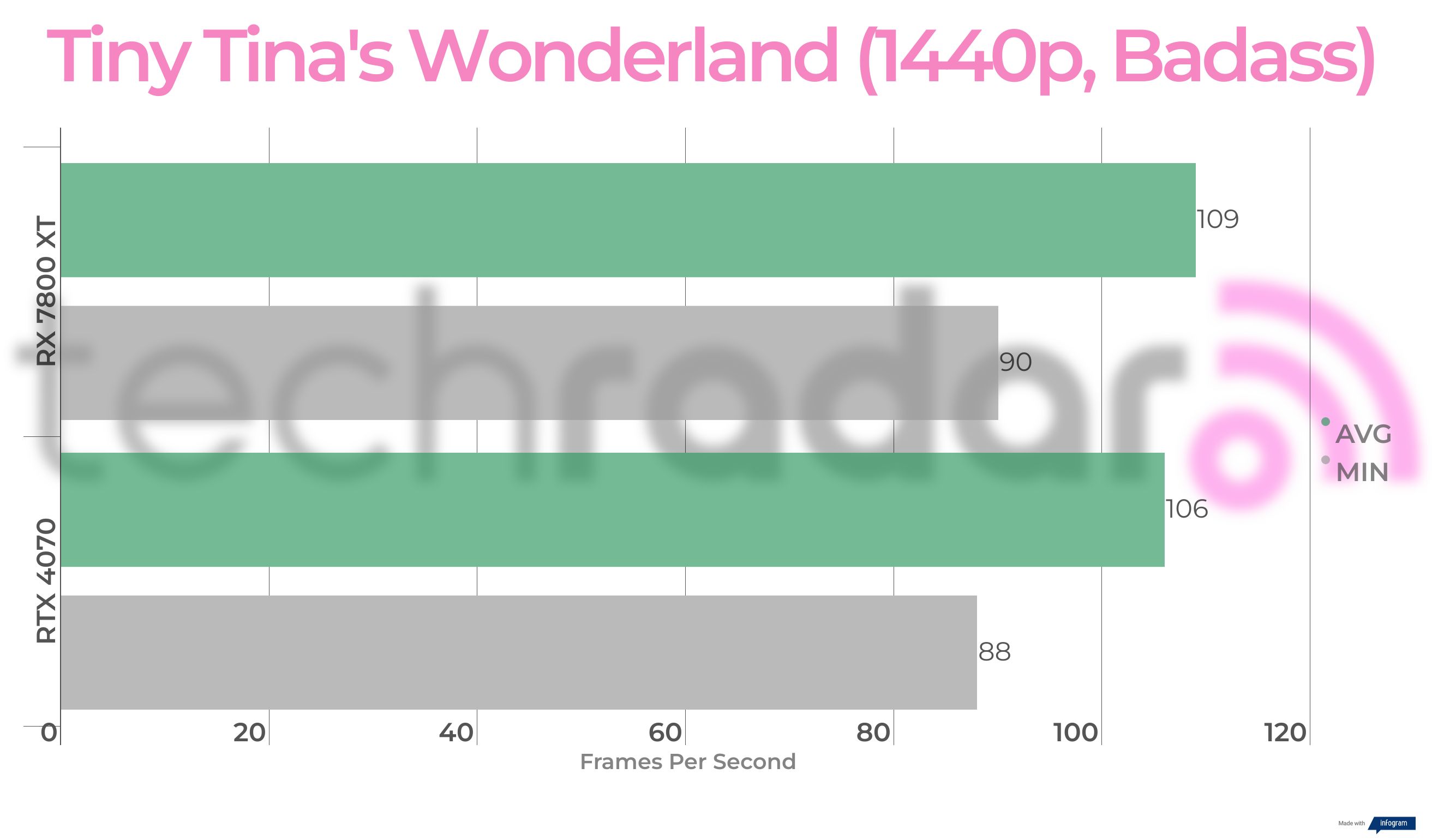
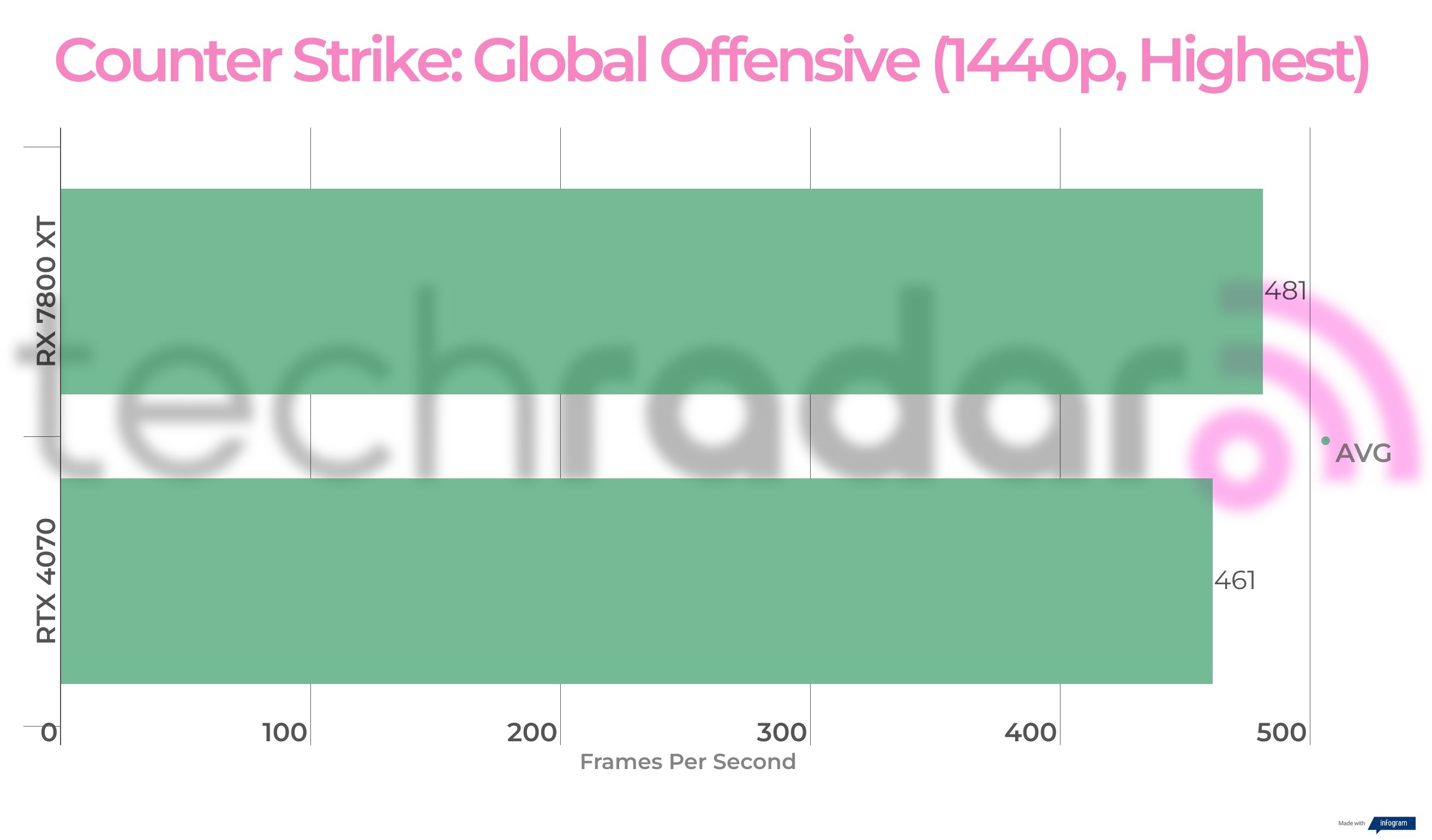
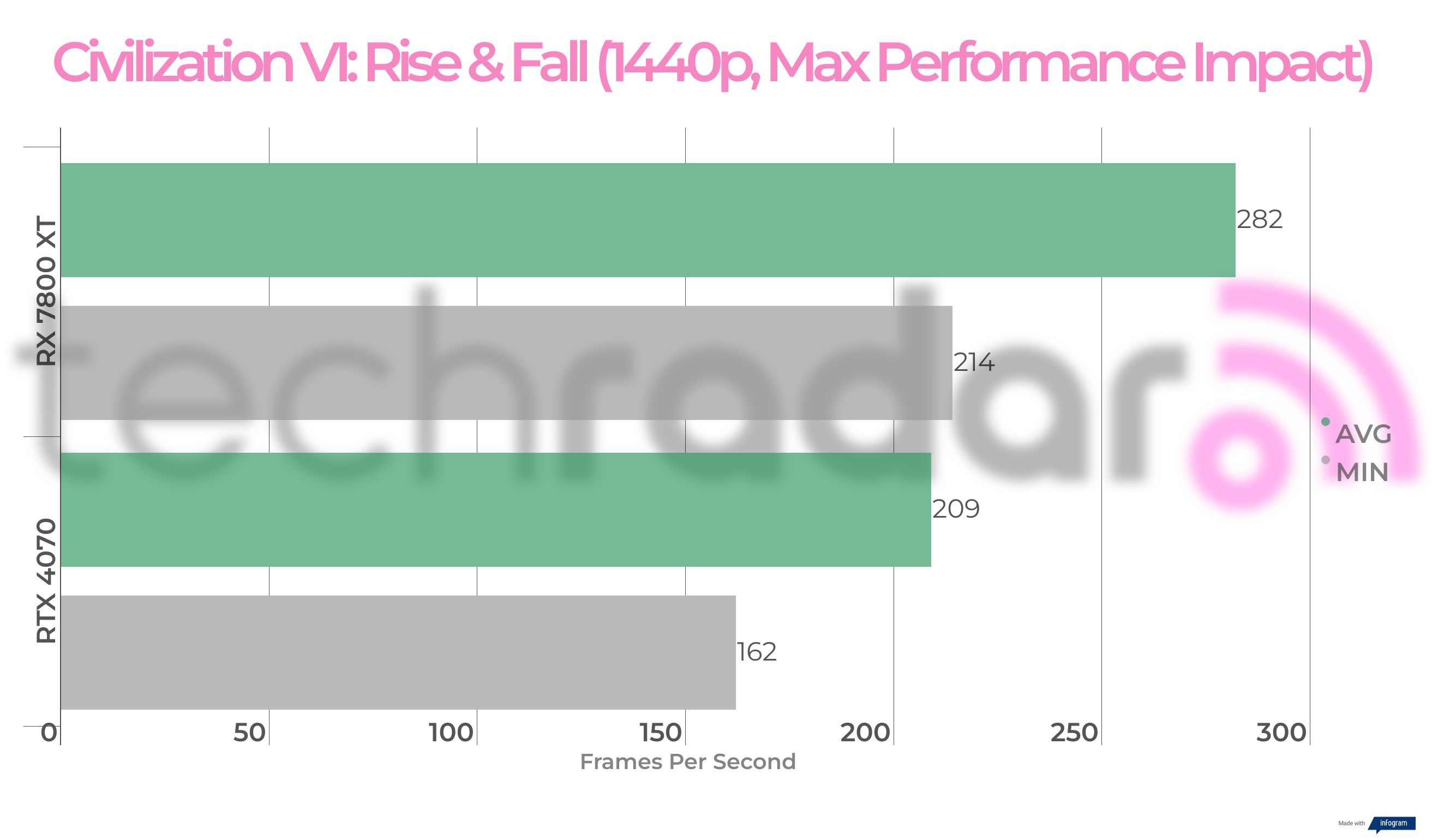
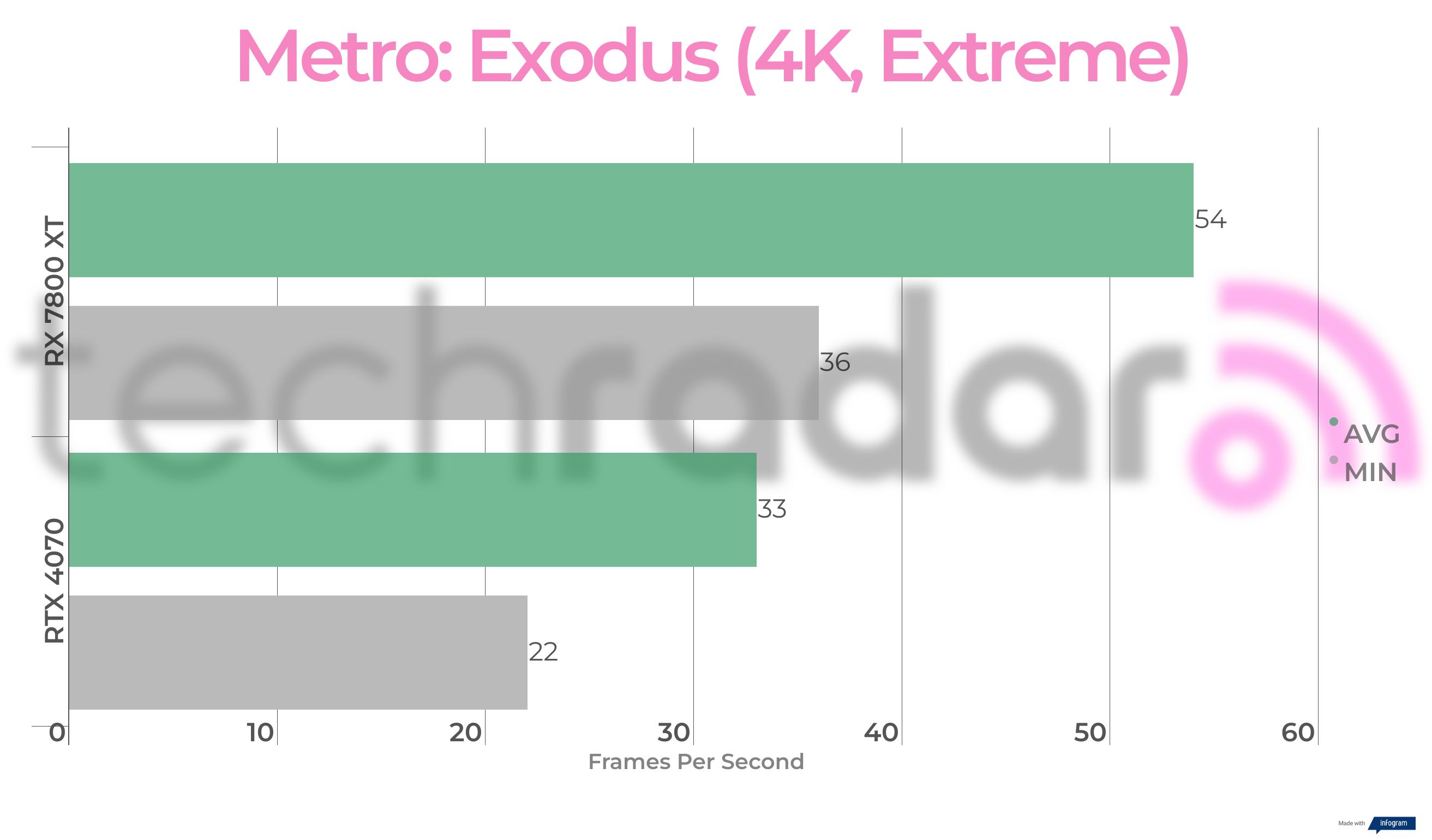
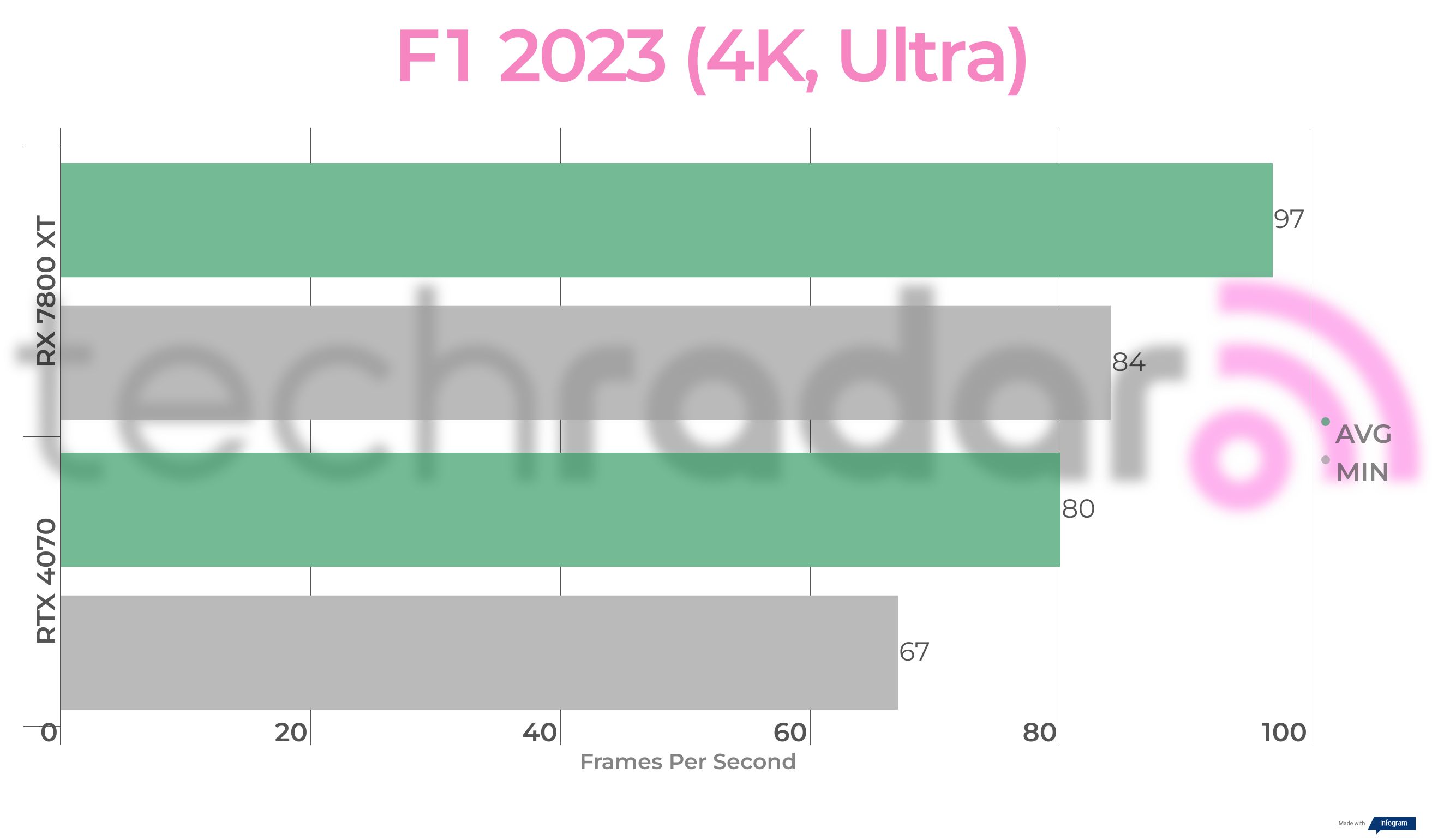
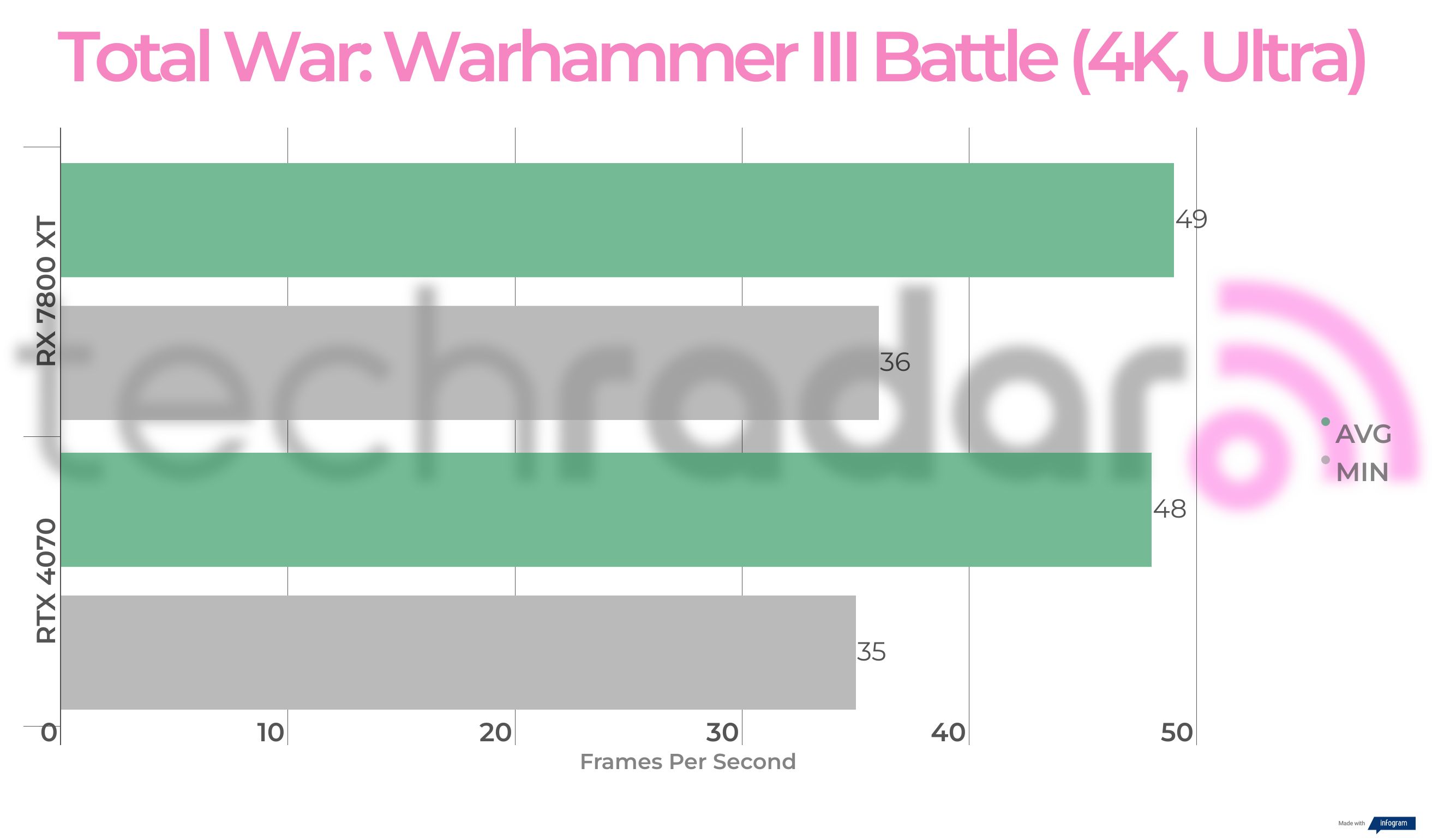
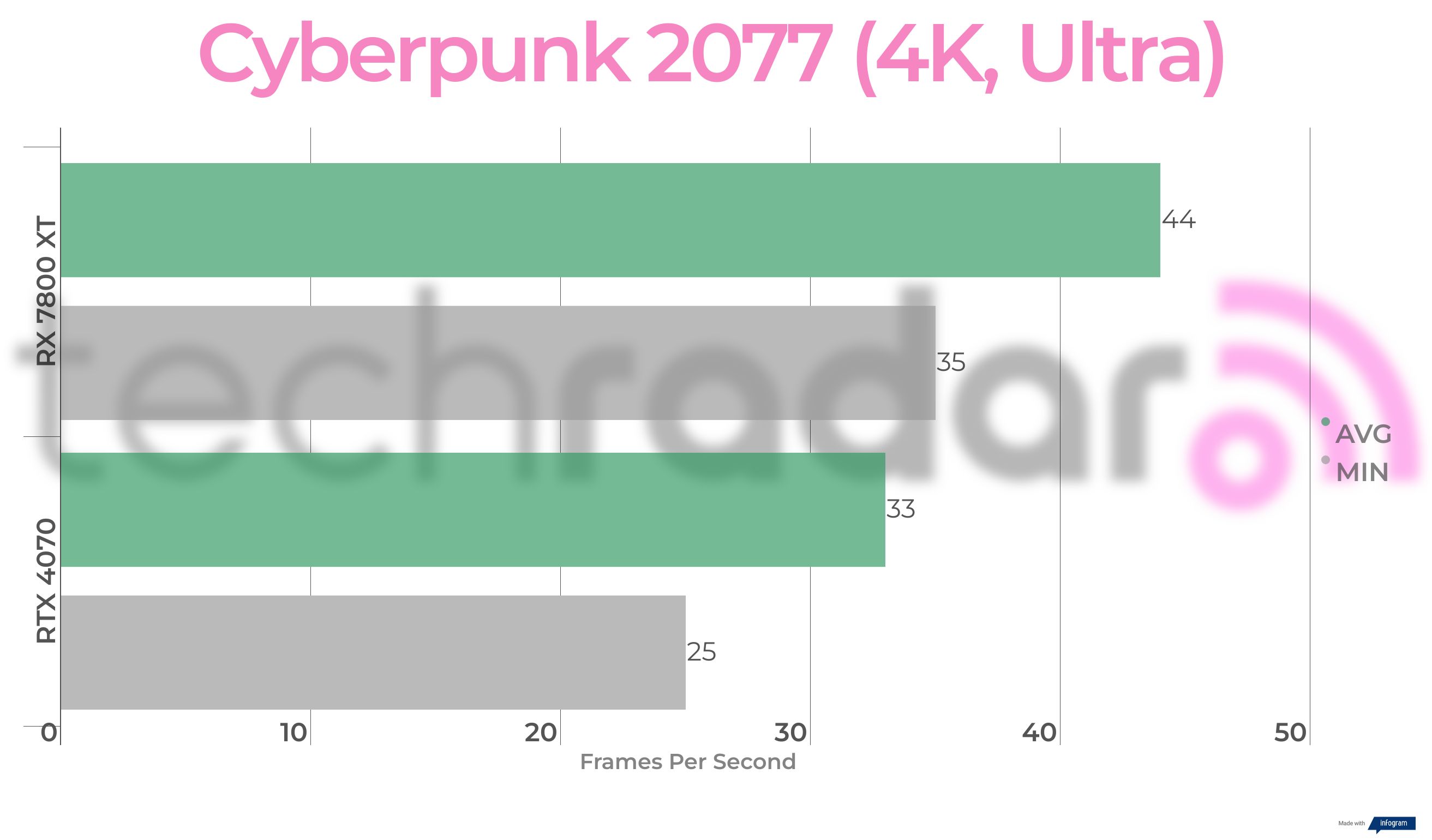
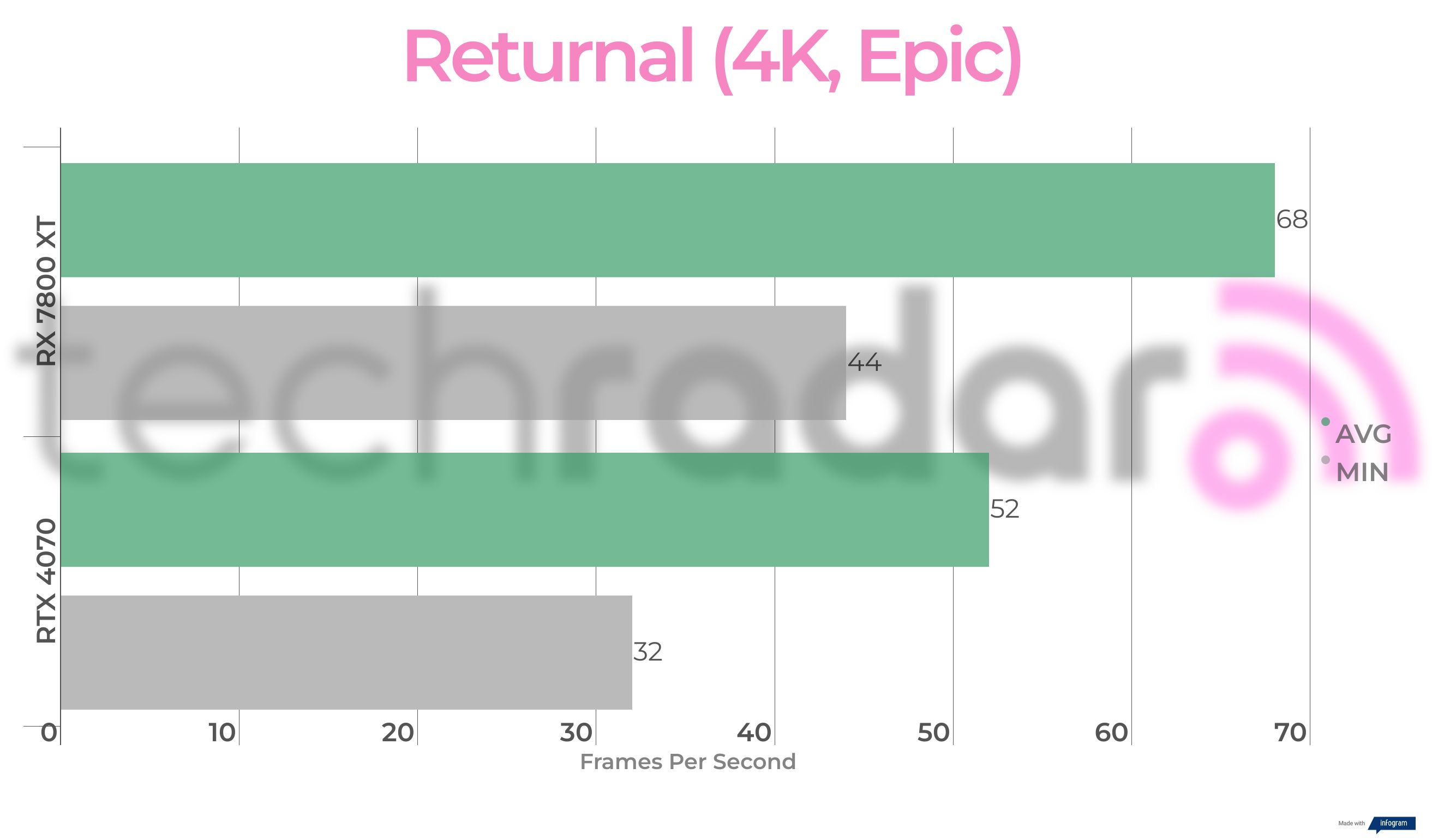
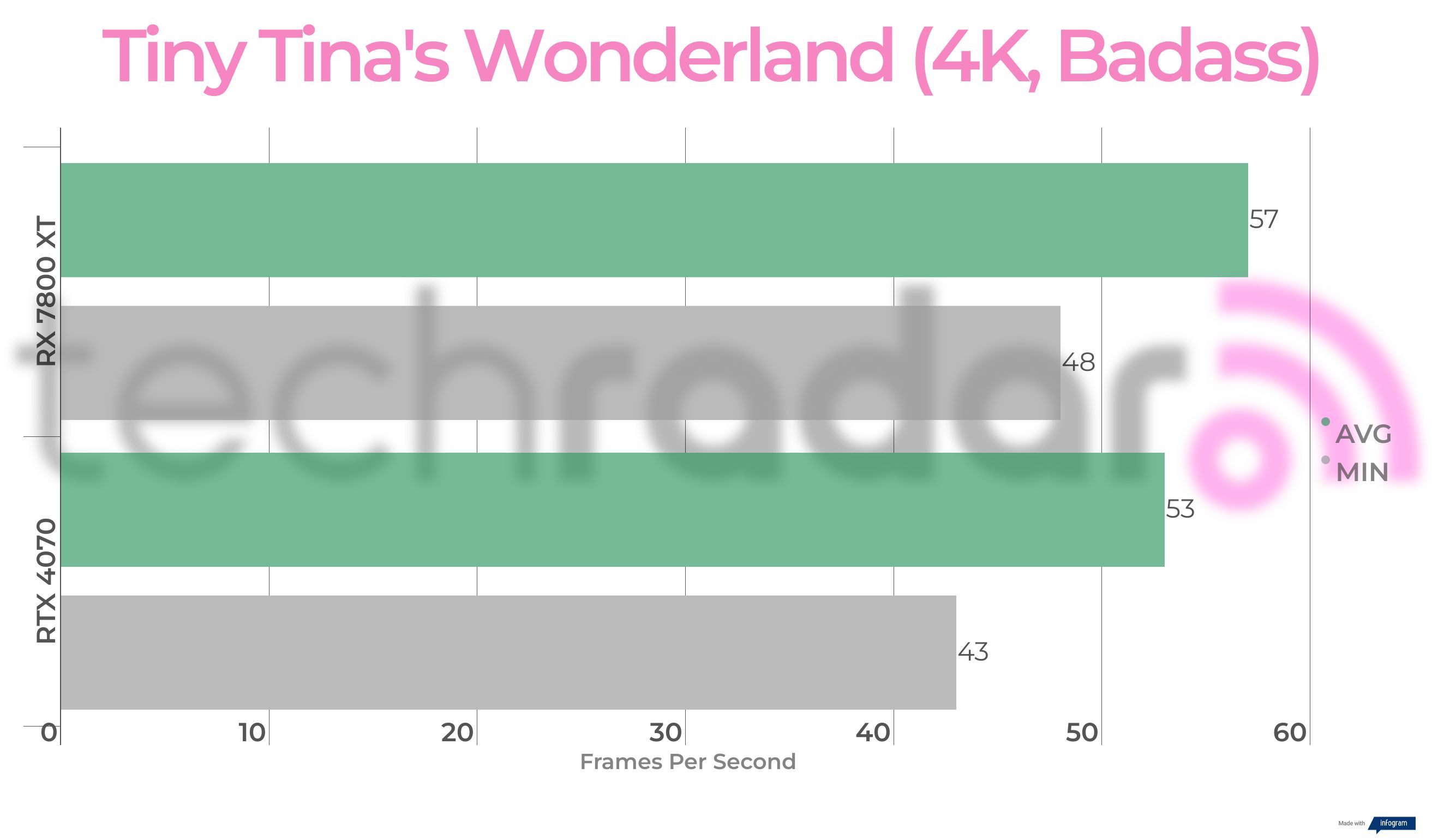
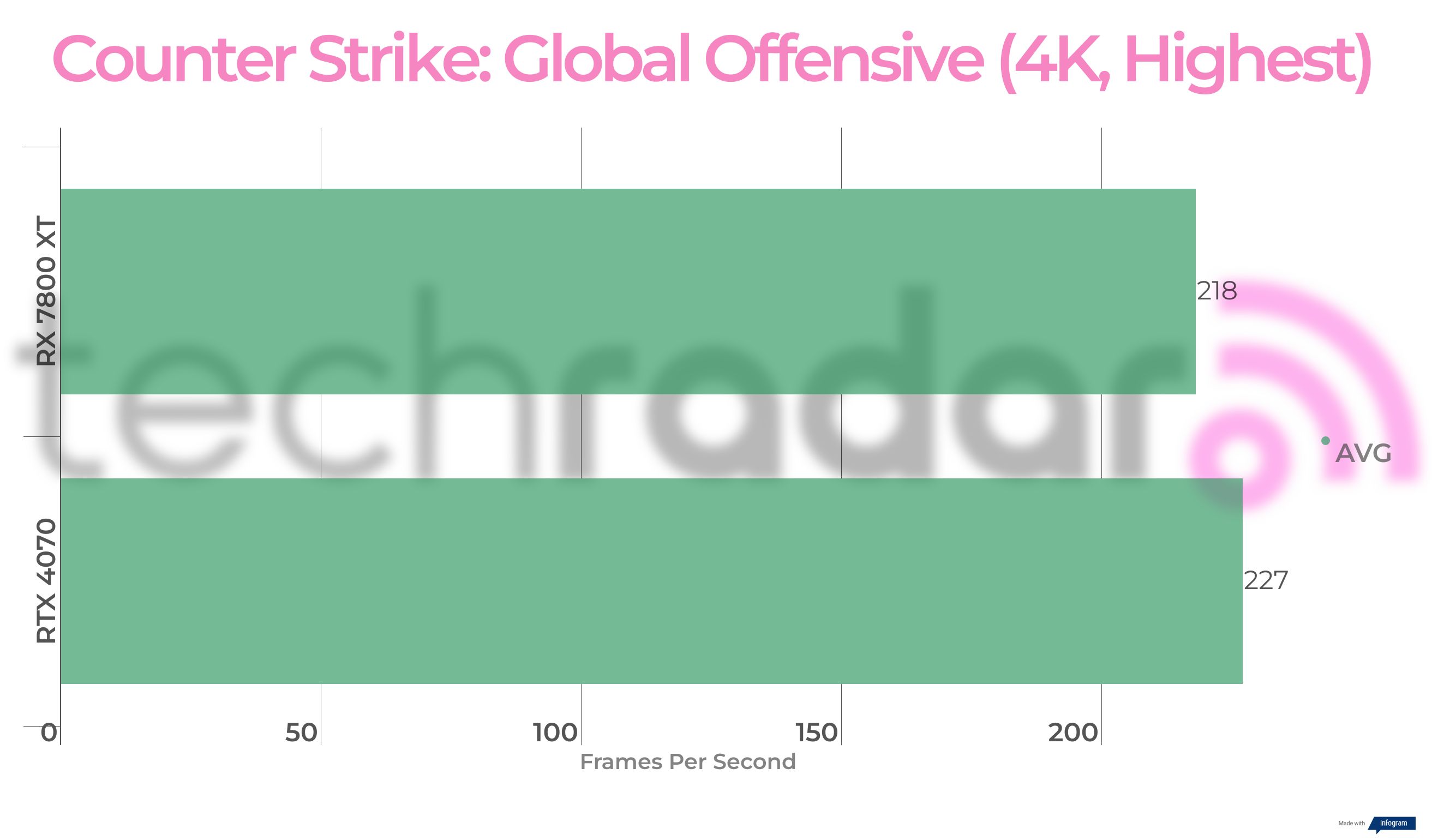
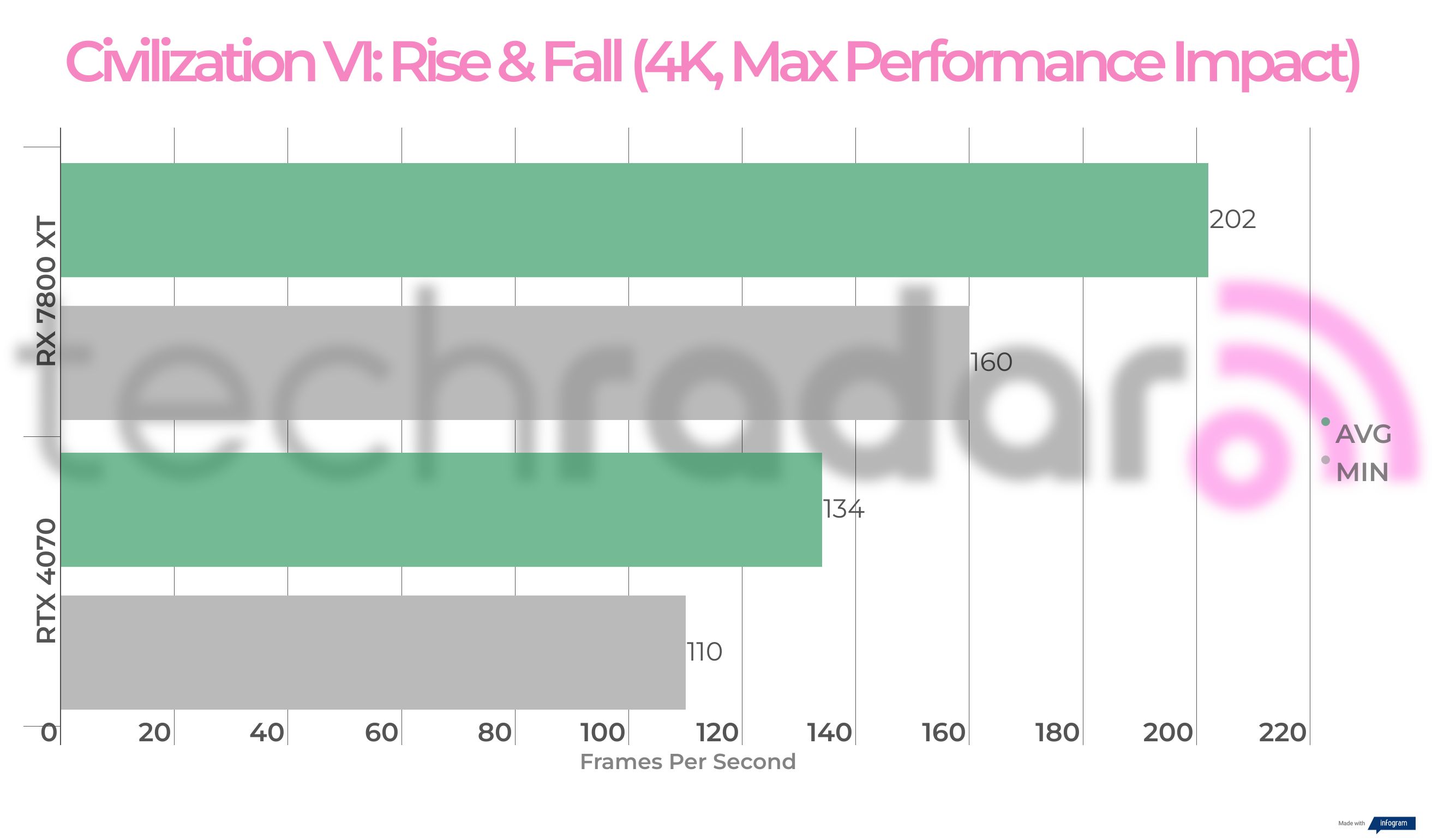
In terms of gaming performance, AMD's midrange card does a much better job playing at 4K, and in a surprise turn, FSR 2 actually manages to outperform DLSS 3 when not factoring in Frame Generation.
Nvidia's strength is in ray tracing though, and when gaming with ray tracing, the RX 7800 XT falls short of the RTX 4070, especially when factoring in upscaling at 1080p and 1440p. At 4K, however, the RX 7800 XT's native ray tracing performance is much closer to that of the RTX 4070's thanks to the latter's larger VRAM pool, and on average, the RX 7800 XT is only about 15% slower with ray tracing turned on and upscaling set to balanced.
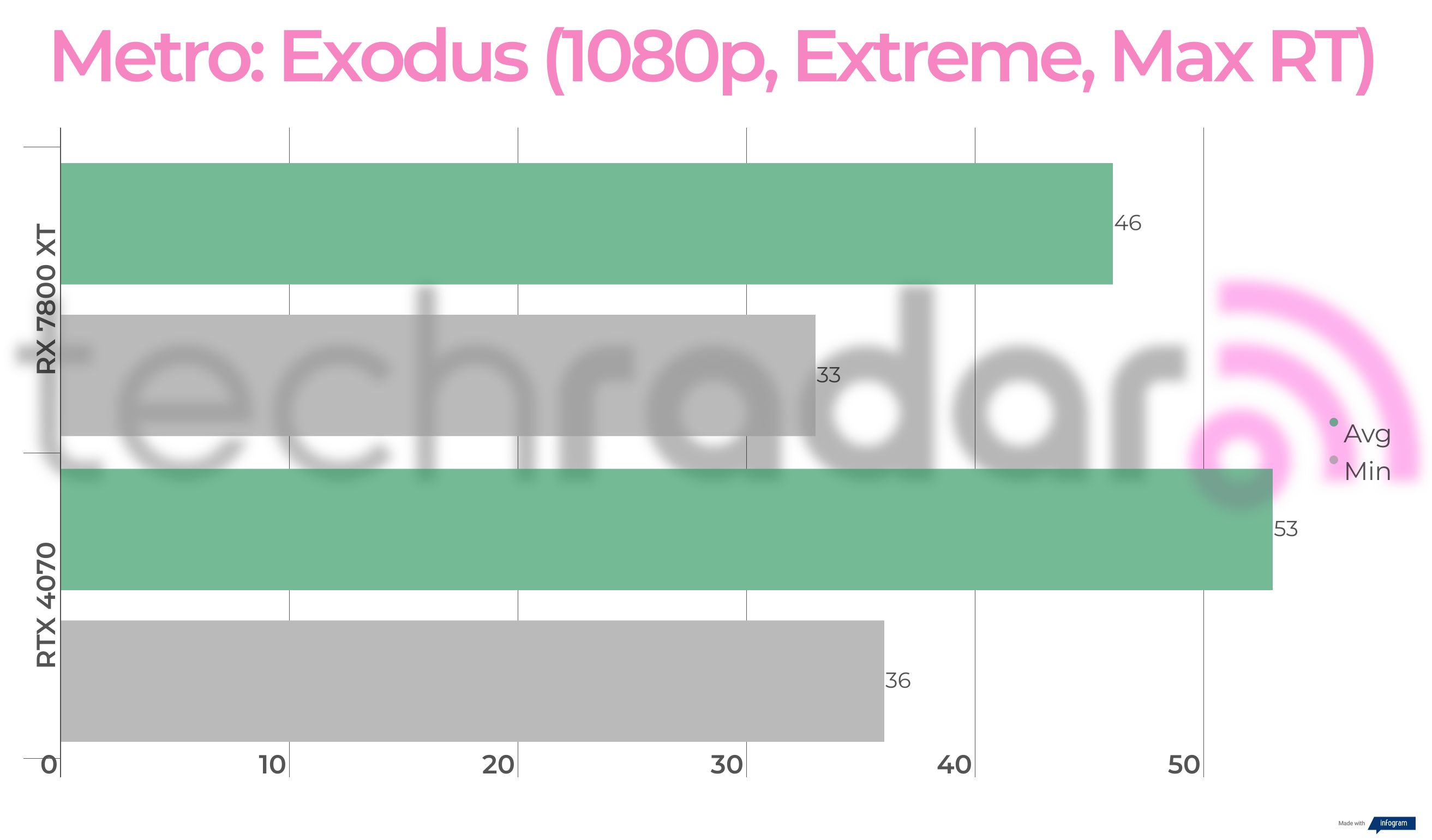
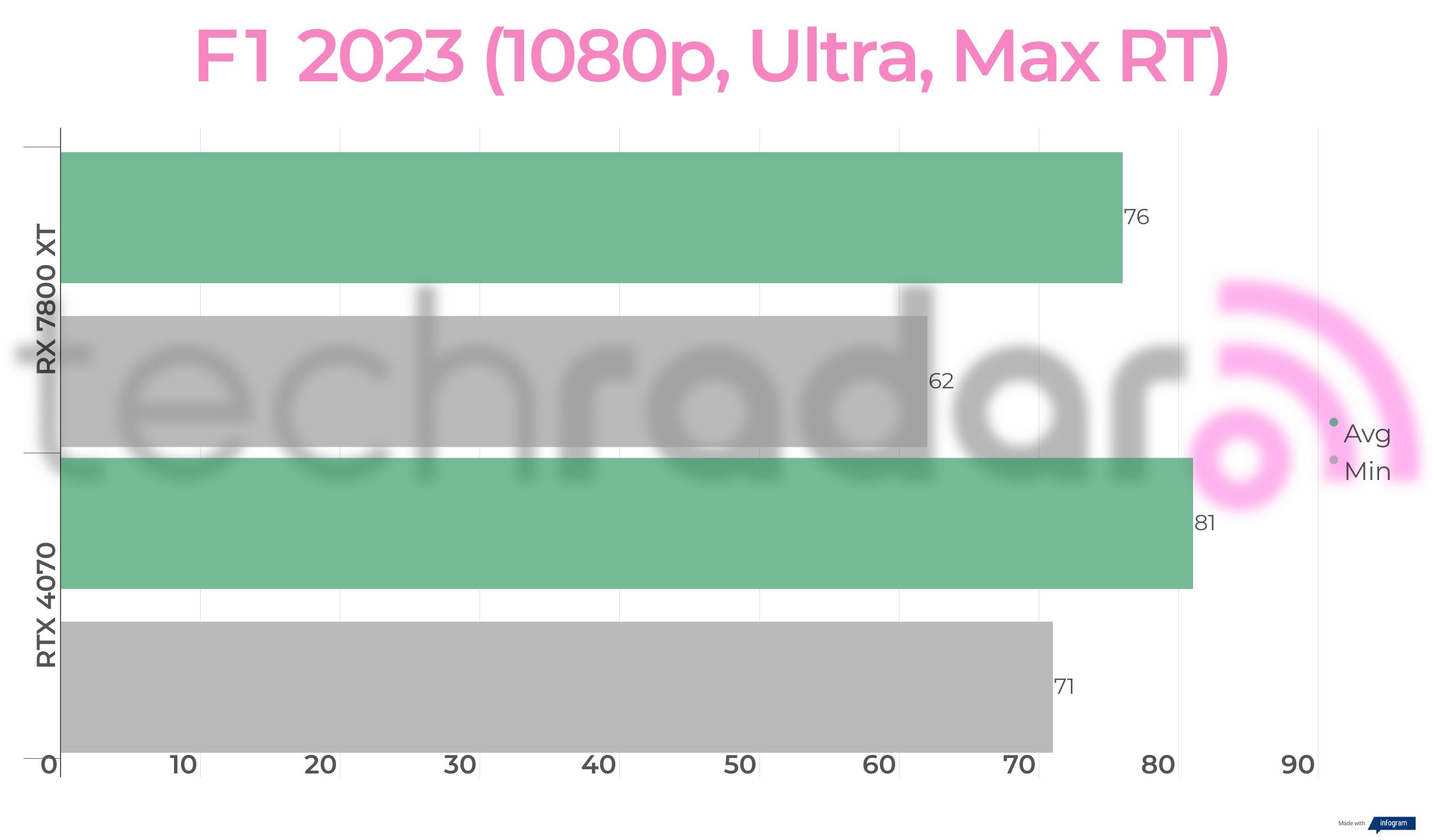
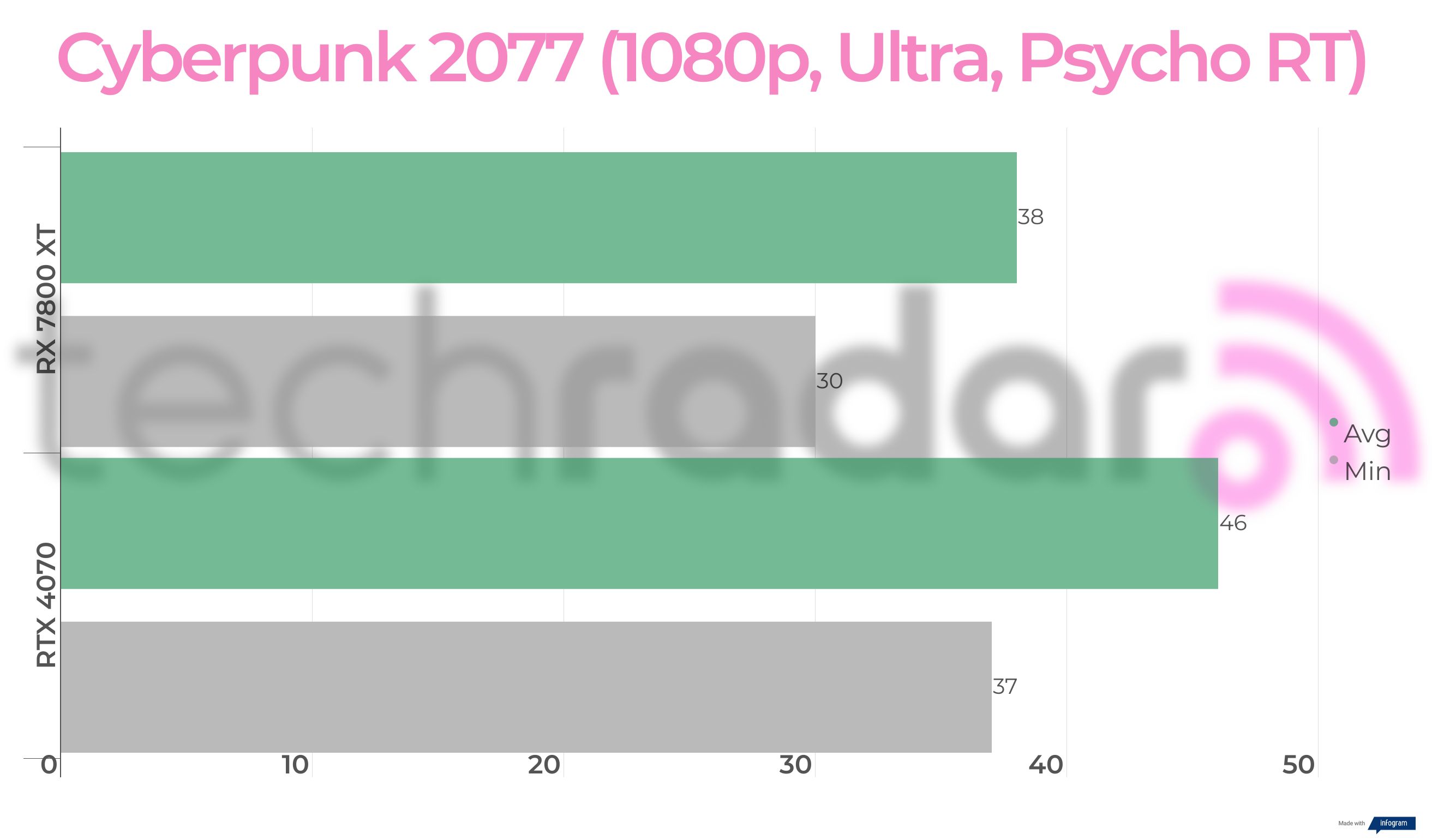
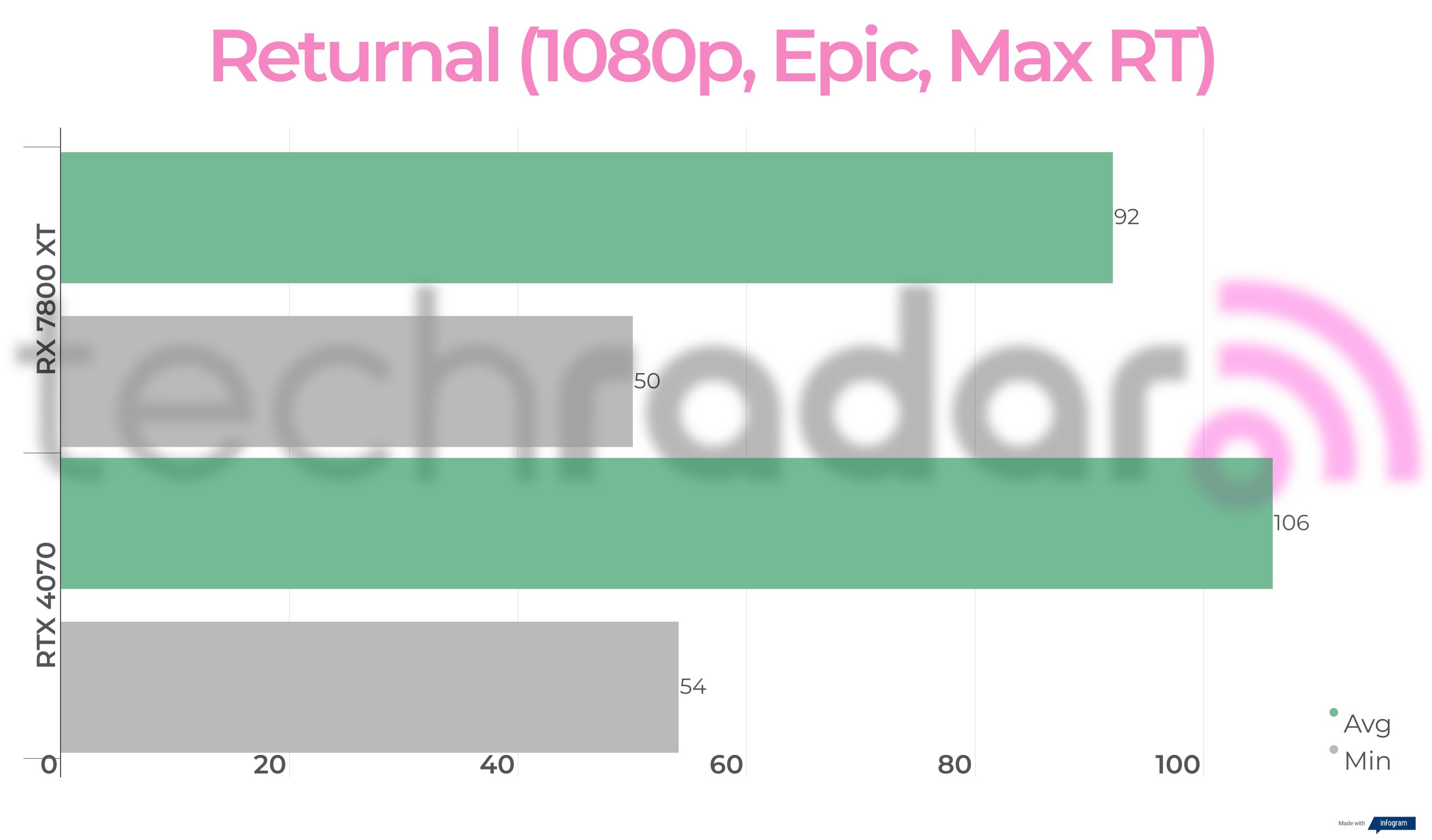
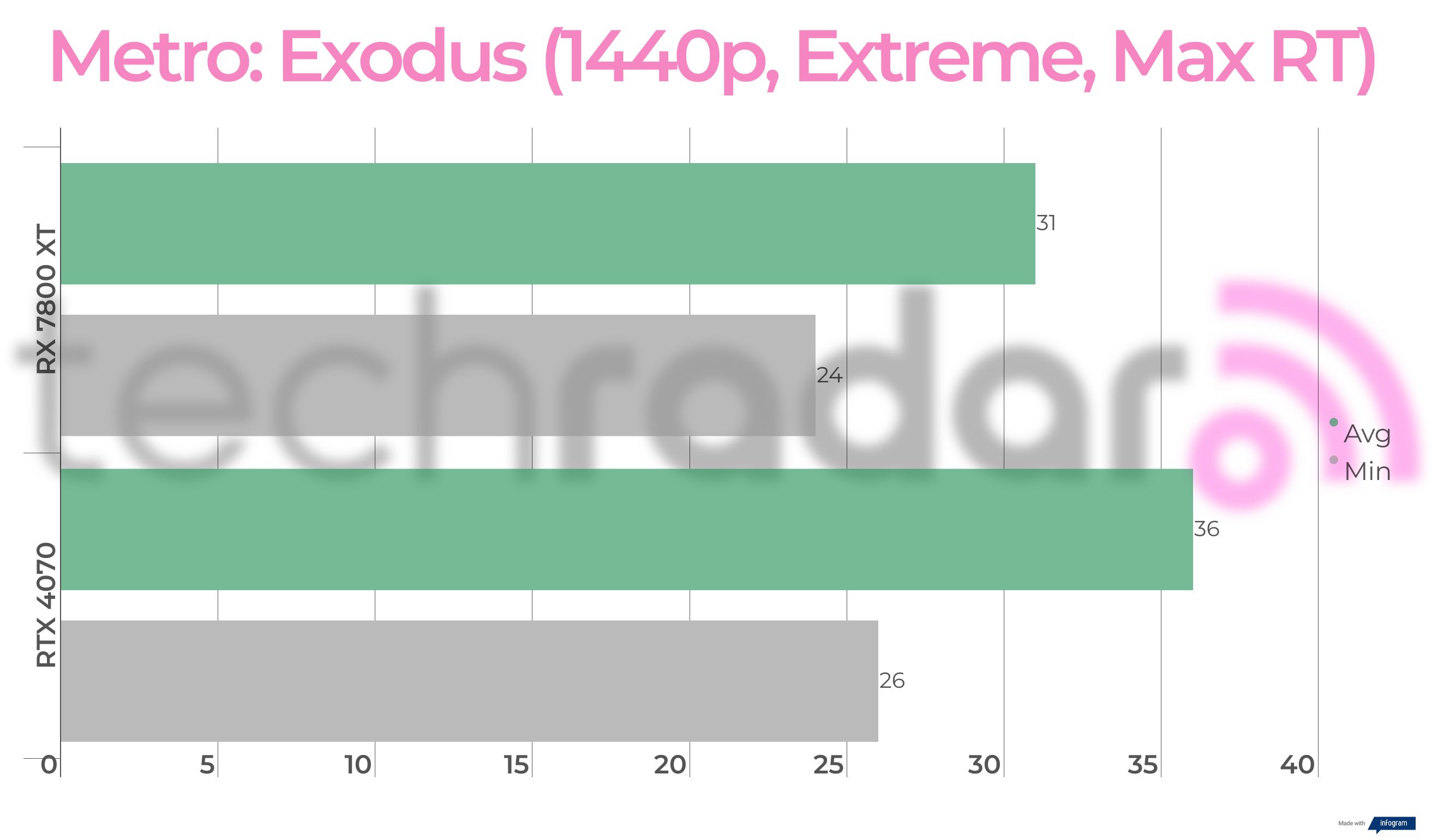
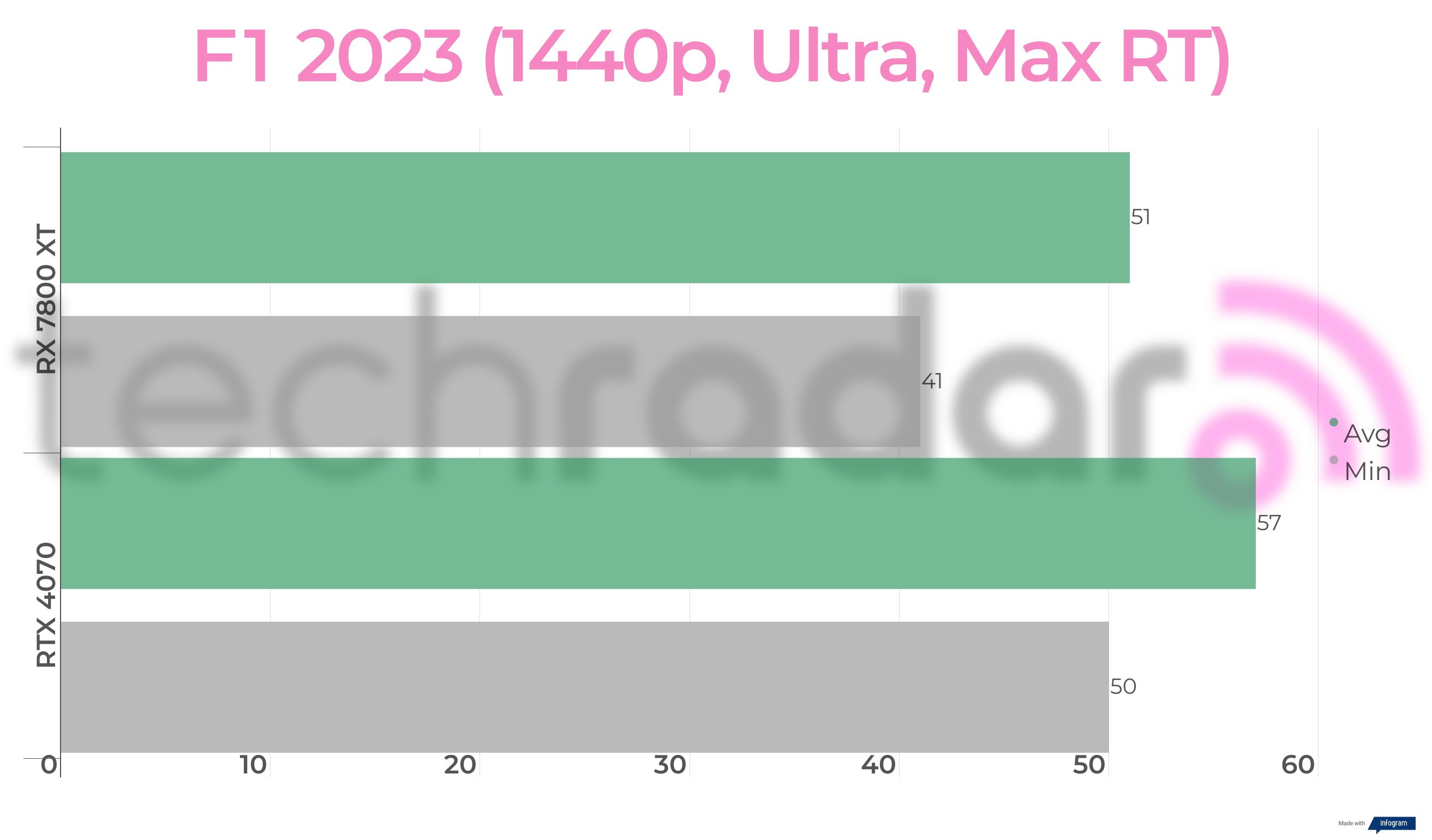
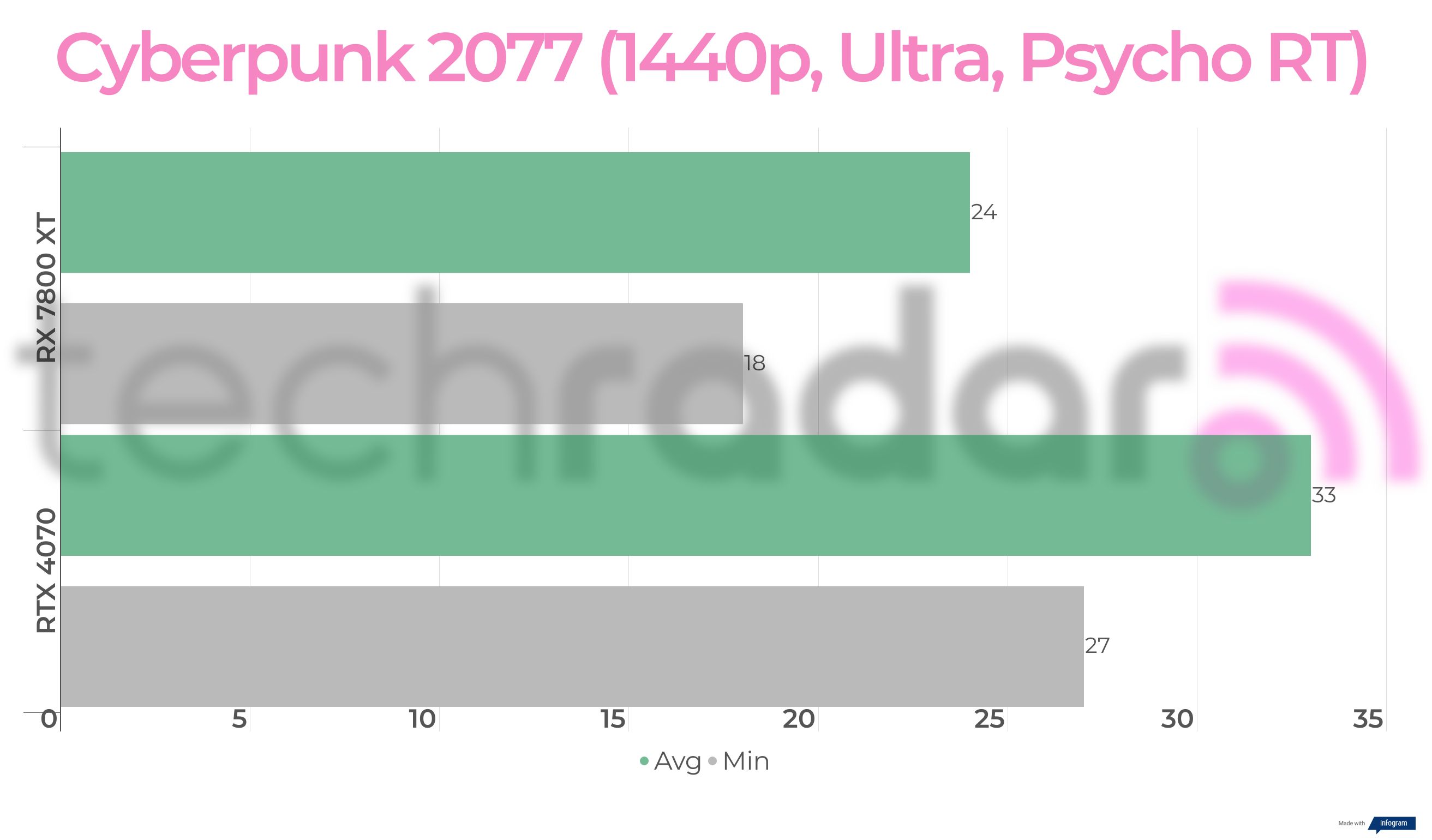
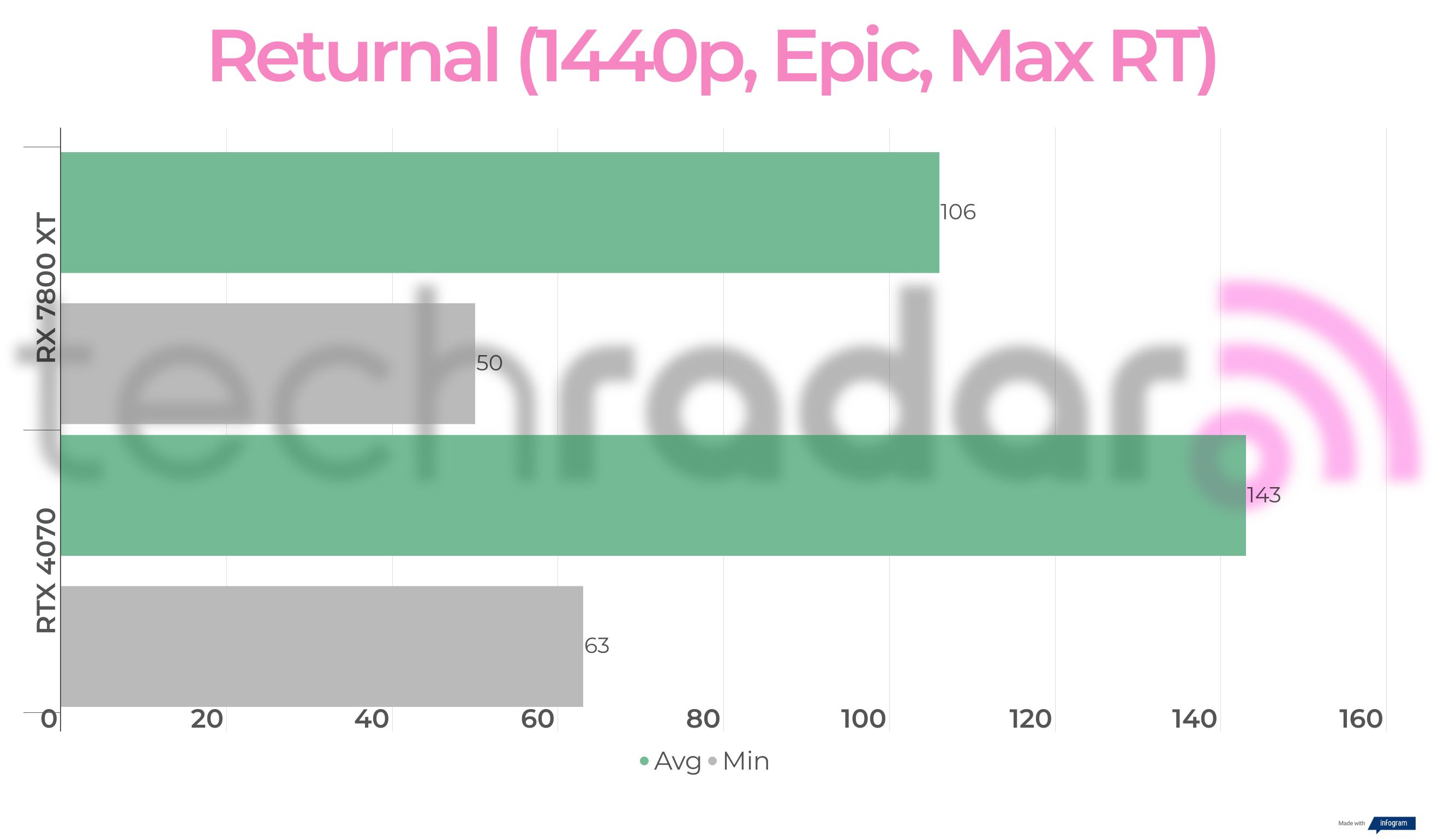
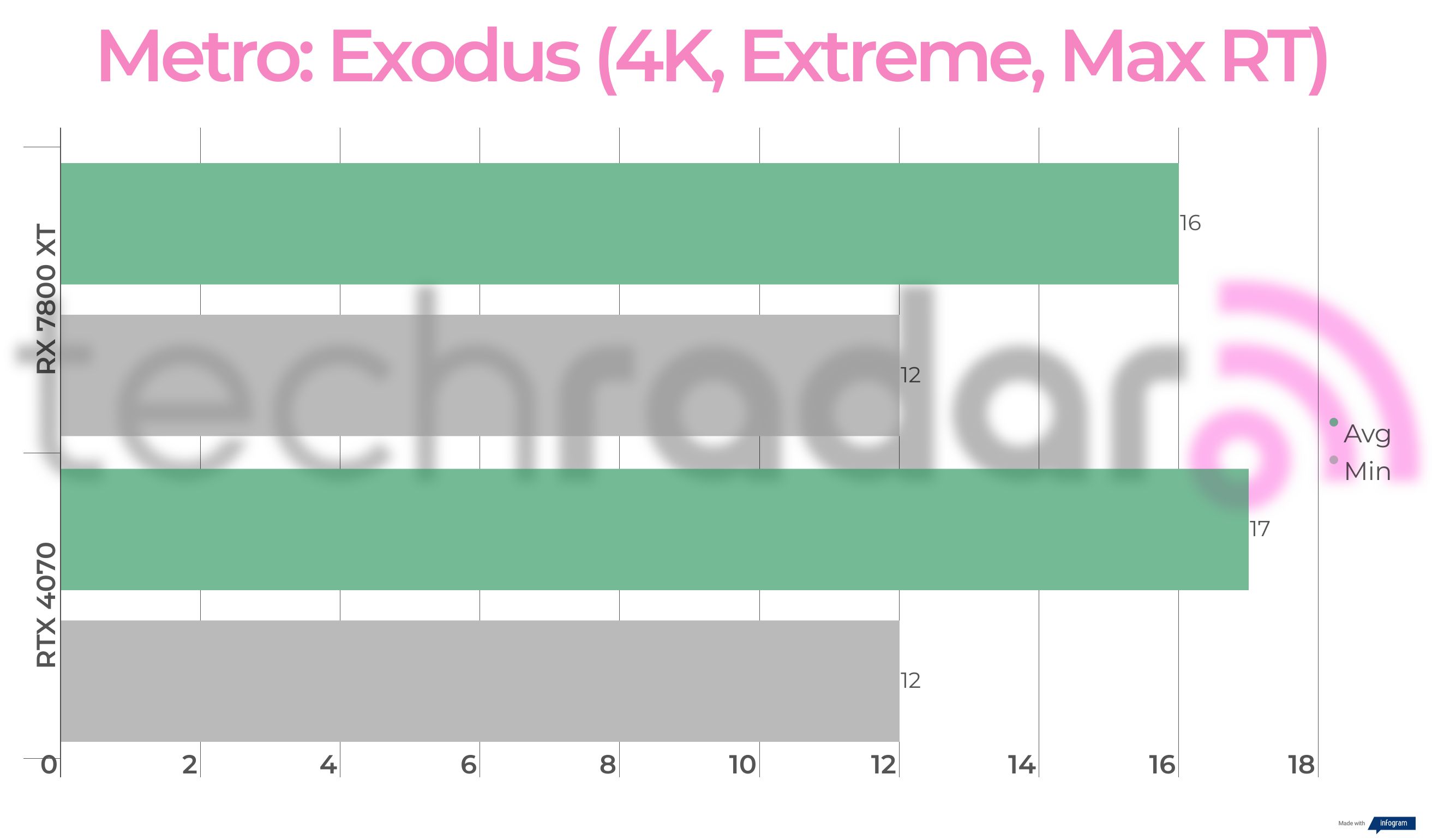
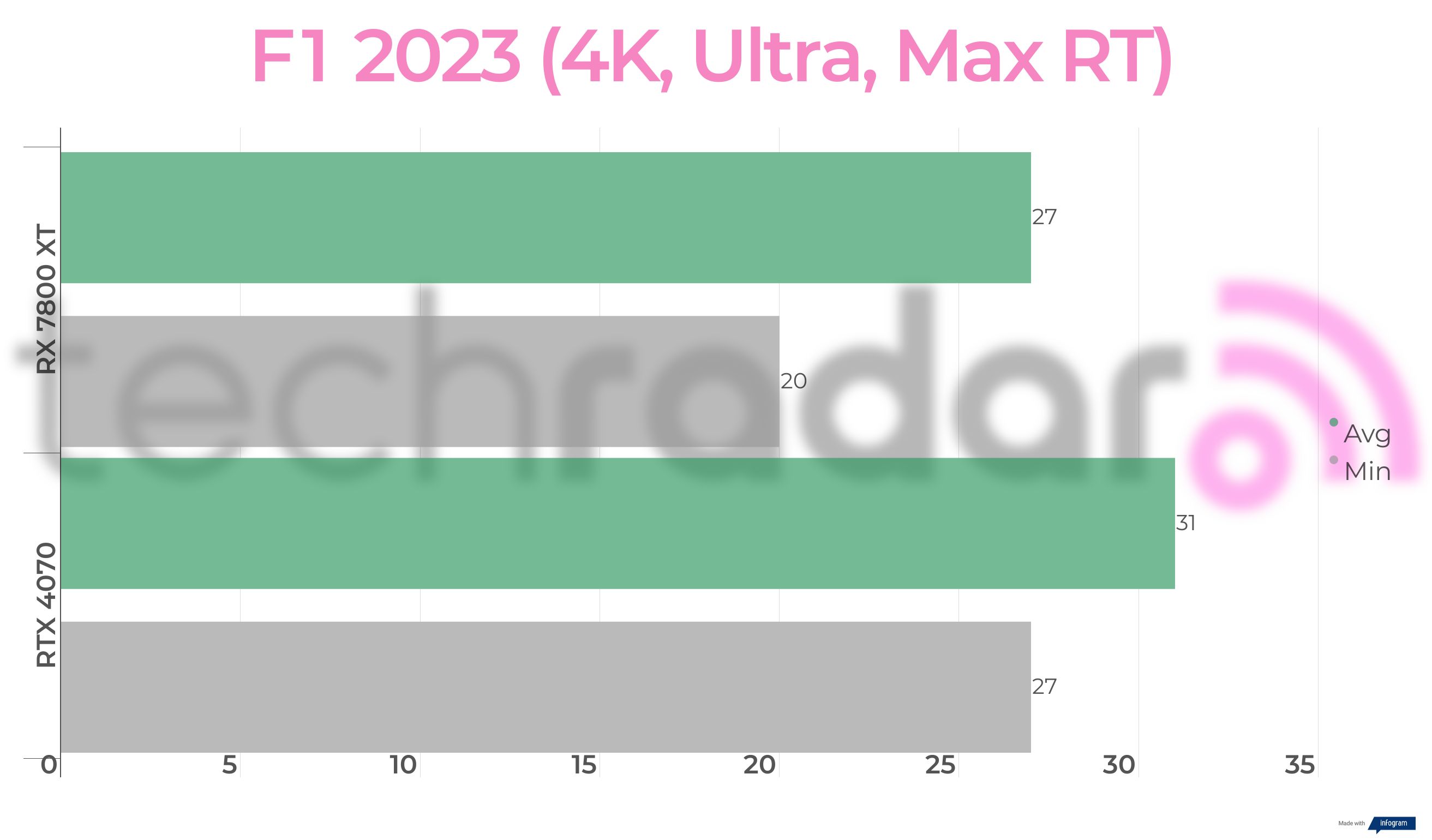
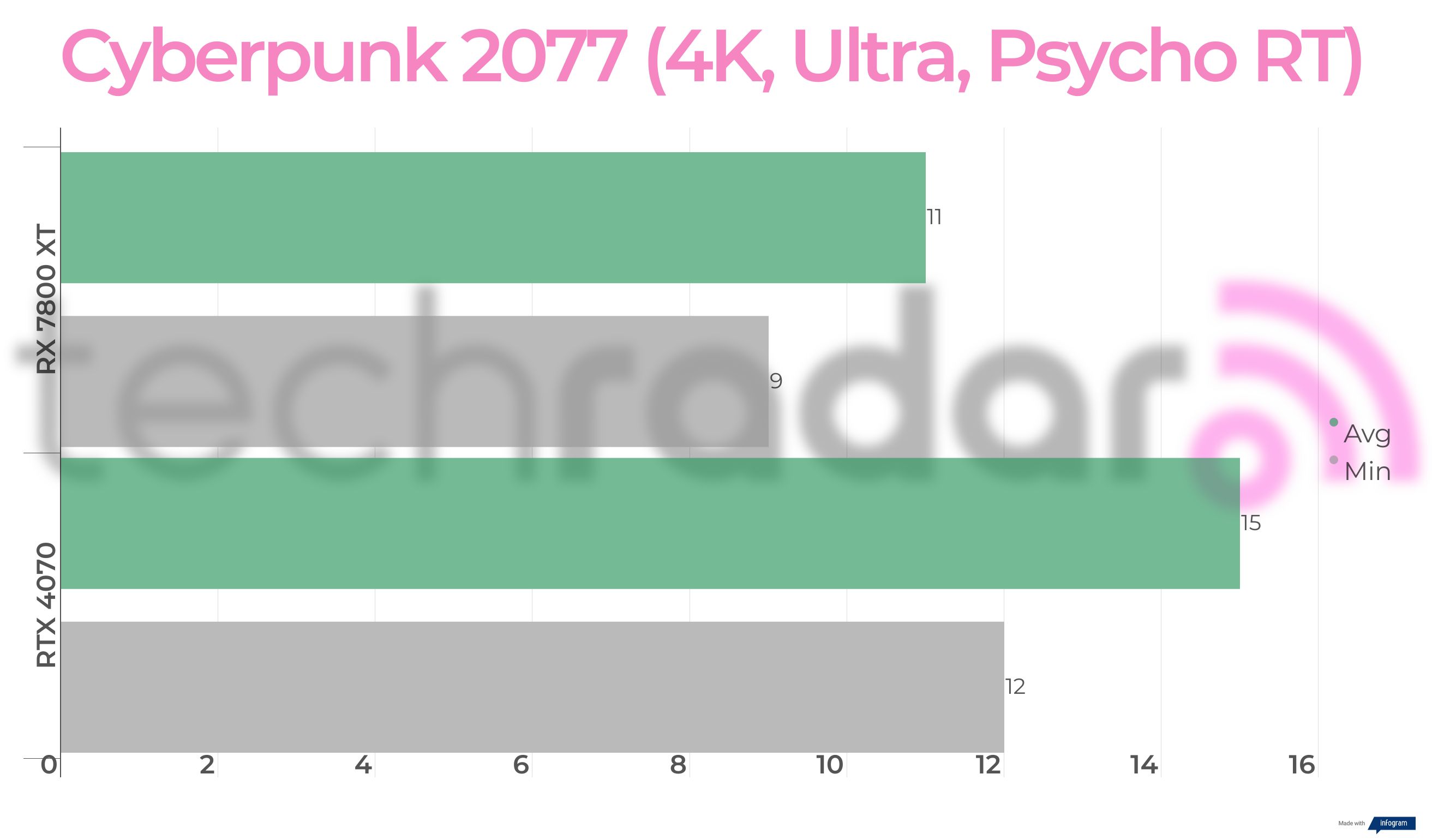

And, to be clear, when it comes to creative workload performance, the RTX 4070 is the better graphics card by far, but if you're running creative workloads professionally, the RTX 4070 isn't the card for you anyway, and for casual creative work, most people wouldn't even notice the difference between the two, so the creative performance here has less impact than it would in the 7800 XT vs 4070 fight than it would if these cards were much further up the stack.
With that caveat thrown out there, these cards are effectively evenly matched performance-wise for 95% of the people who are looking to buy one of them.
Ultimately, if ray tracing is your number one priority, then the RTX 4070 will give you better performance on that front. If you don't care about ray tracing, or don't mind turning the ray tracing settings down a notch or two, then the RX 7800 XT is going to give you much better performance.
- Winner: Tie
Which one should you buy?
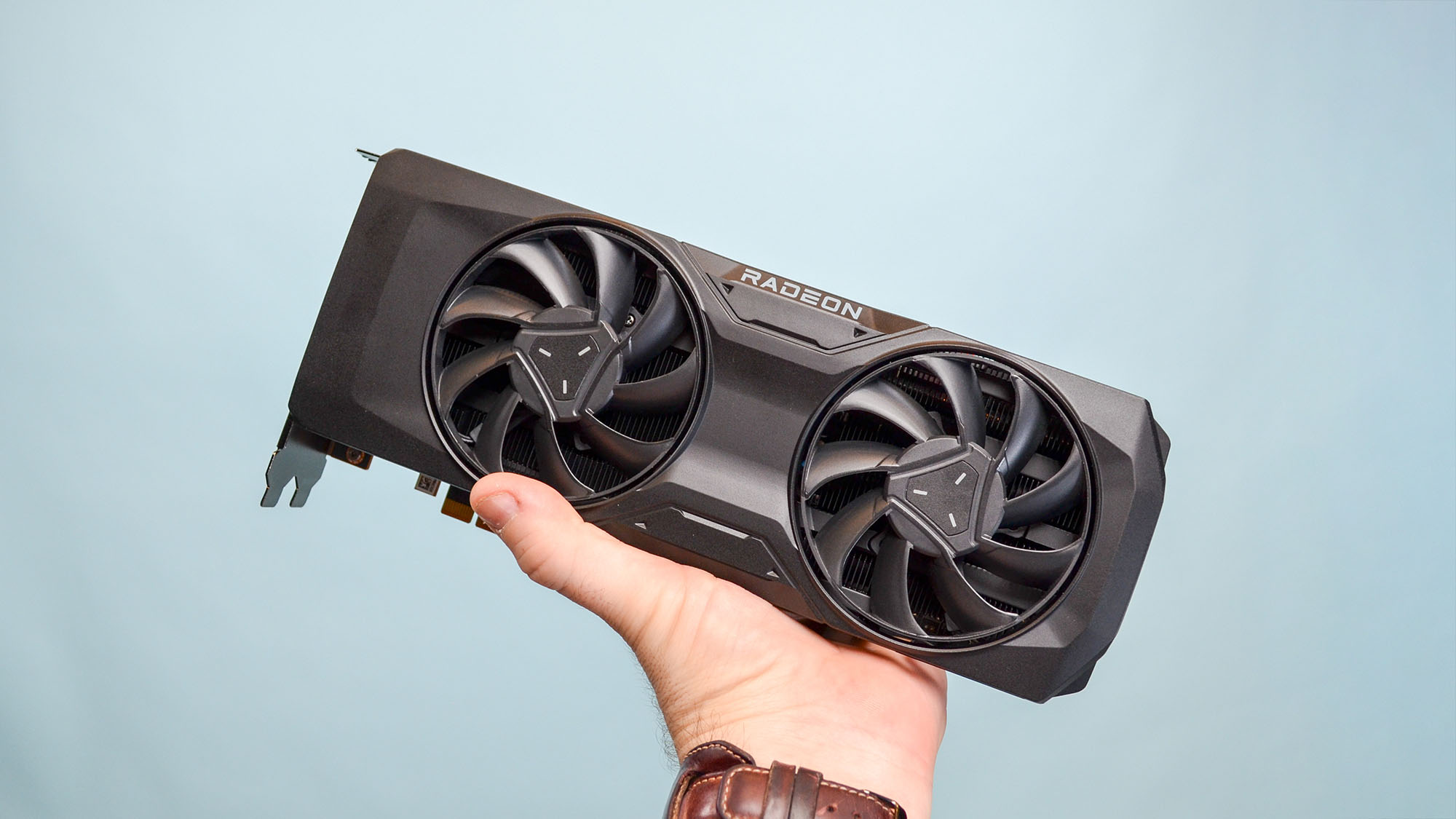
Honestly, the one question you need to ask yourself is whether you're going to need to do serious creative work on the card you buy. If so, then the RTX 4070 is the card to go for between these two, though really you need to get at least an Nvidia GeForce RTX 4070 Ti for any serious content creation workloads. The RTX 4070 really just doesn't have the VRAM for commercial-scale creative work.
If you couldn't give a flip about Blender, Maya, or Adobe Premiere, then the RX 7800 XT is the best graphics card of the two, in my opinion. You get better performance from the RX 7800 XT on the vast majority of PC games out there since only a few games have ray tracing, and only a few of them lean very heavily into it. Even then, the RX 7800 XT can still work beautifully with ray tracing given some settings tweaks and FSR 2 (we haven't even seen what FSR 3 can do yet).
Ultimately, the price of the RX 7800 XT and its compelling performance make it the best 1440p graphics card of this generation, and it's one you definitely don't want to pass up.
You might also like...

John (He/Him) is the Components Editor here at TechRadar and he is also a programmer, gamer, activist, and Brooklyn College alum currently living in Brooklyn, NY.
Named by the CTA as a CES 2020 Media Trailblazer for his science and technology reporting, John specializes in all areas of computer science, including industry news, hardware reviews, PC gaming, as well as general science writing and the social impact of the tech industry.
You can find him online on Bluesky @johnloeffler.bsky.social
- Aleksha McLoughlinContributor
You must confirm your public display name before commenting
Please logout and then login again, you will then be prompted to enter your display name.